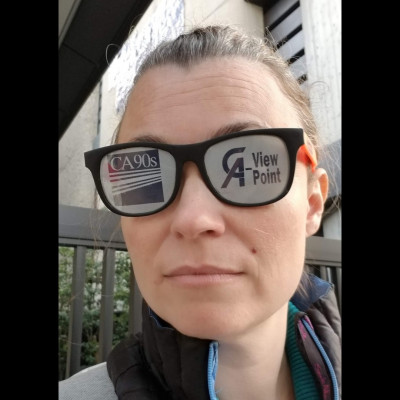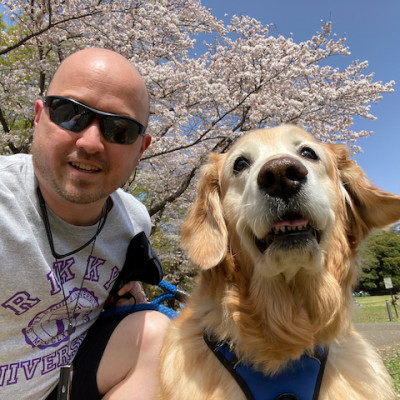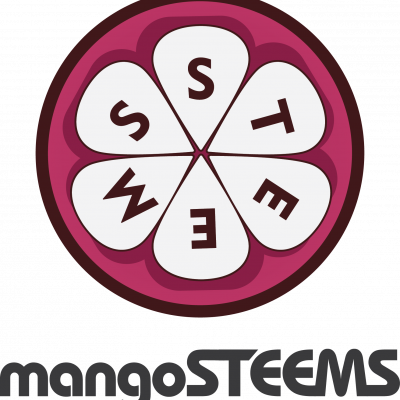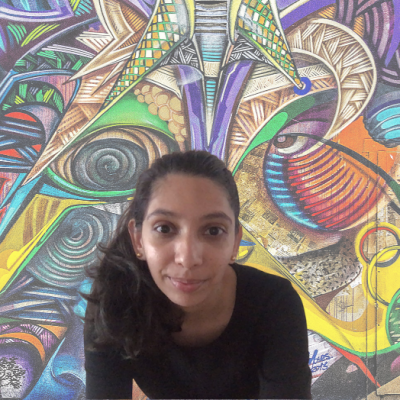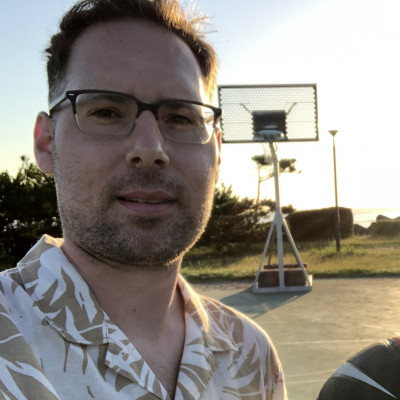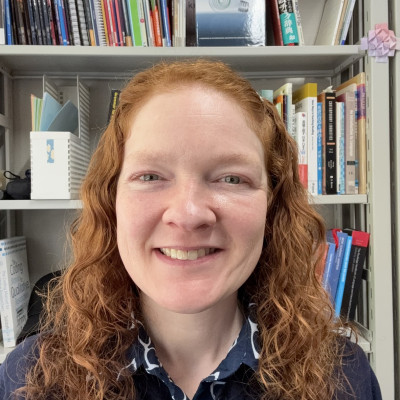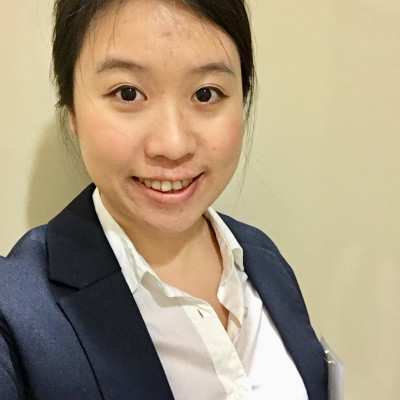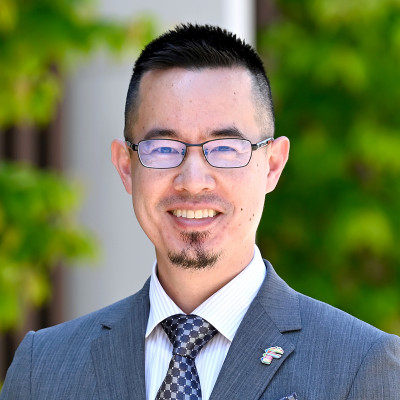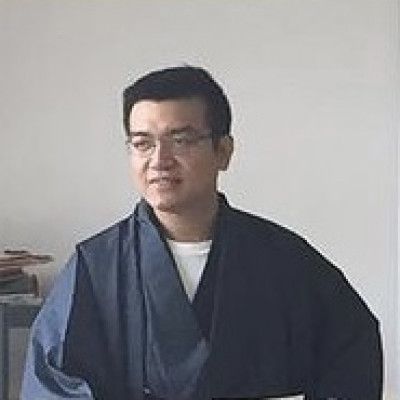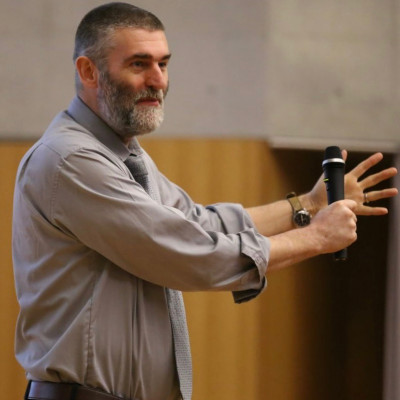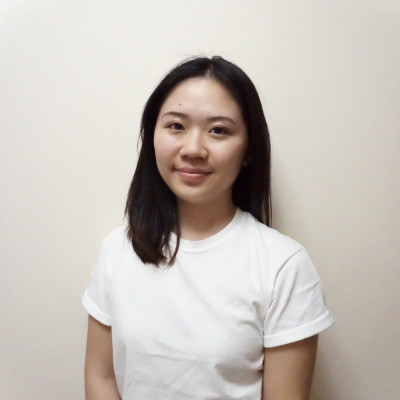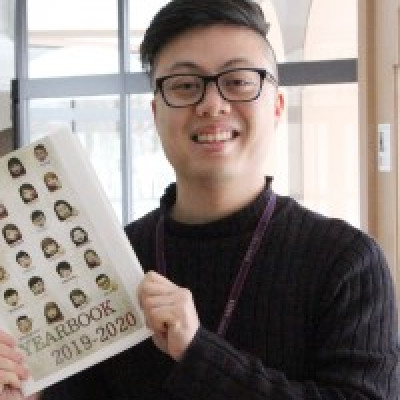Schedule Go Compact (displays all)
You can use Quick Lookup to quickly find sessions. But best is to use the LIVE SCHEDULE during the conference itself.
Please note
You didn't select any categories, so the first 120 from today are displayed. You may want to select a particular day or category if you want to ensure all (including untimed) are displayed.
Pre-Conference Q&A Session #1645
Open to Presenters, Attendees, and Hosts. If you have any questions about the conference this weekend please drop in for a chat.
Lounge #1646
A space for continuing conversations from presentations or just socializing. There will be self-selecting breakout rooms available, so feel free to enter one, relax, and see if anyone stops by to 'sit at your table'.
Using ZOOM to Enrich Classroom Community Rapport #1390
In the distance learning environment, fostering and nurturing classroom community has become increasingly important. Language learning takes place beyond the classroom through community engagement, interactions with peers, family, and friends. By encouraging our learners to value the importance of social and intellectual relationships, students respond positively to risk-taking, increased self-esteem and self-efficacy, develop greater cognitive performance, and so much more. ZOOM provides an online platform for students to not only interact with each other “in” the classroom but outside of it. In this workshop, I seek to offer a practical demonstration of how to effectively do this. I will introduce pre-teaching activities such as turn-taking strategies and conversation phrases and expressions. Following this, I will provide a structure to guide students in leading discussion circles through ZOOM. The workshop will end with student and teacher reflections, insights, and potential pitfalls.
Designing materials to boost language learners’ reading skills with Clilstore #1413
This workshop will present the work of the EU-funded CLIL Open Online Learning Project (www.languages.dk). Since 2018, the project team have been updating and expanding the functionality of clilstore.eu - an Open Educational Resource which serves as a repository of open access materials and an authoring tool that enables educators to create multimedia learning units combining audio, video, text, images and Web 3.0 applications. Learner autonomy is underpinned by the way the authoring software treats embedded texts, that is, verbatim typescripts of audio or audiovisual recordings are automatically linked word for word to a nexus of online dictionaries that helps boost their reading skills.
This workshop will introduce participants to the ways in which Clilstore can support Content and Language Integrated Learning (CLIL) and language learning generally. A selection of sample learning units showing how Clilstore.eu is currently being used to good effect will be presented. Participants will then be given a hands-on demonstration of how to author a new teaching unit containing: video/ audio content, transcript with all words linked to online dictionaries in over 100 languages, and embedded learning tasks. Participants will also learn how to use Clilstore's inbuilt portfolio and personal vocabulary tools. The Clilstore user interface is currently available in the following languages: Danish, English, Spanish, Irish, Scottish Gaelic and Italian.
Immersive learning with Engage, a cross-platform VR app #1415
Immersive learning has been a buzz word in the field of education for the past several years as an increasing number of affordable consumer devices and free/proprietary apps become available. Among various types of immersive learning solutions, virtual reality (VR) has gained much attention among educational technology researchers and developers worldwide. In this workshop, the presenter will show how to use Engage (https://engagevr.io/), a proprietary virtual reality app accessible on VR and non-VR devices, to create immersive learning materials for on-demand purposes and to conduct synchronous online classes. Given that VR headsets are not yet available to the majority of learners, this platform specifically designed for education can be a promising tool as it is compatible with PCs, iOS and Android mobile devices as well as major VR headsets. Although the freemium version has many features, a paid account is more beneficial for professional content creation and real-time use. The participants of this workshop are requested to download the app on their device in advance.
Will virtual classrooms flourish or wither? #1446
The author invites JALTCALL participants to a BOF (birds-of-a-feather) meeting where everybody thinks out loud in an informal setting. Data, analyses, and predictions of pre- mid- and post-pandemic virtual classrooms are scarce because the situation is developing. Before the COVID-19 pandemic, some teachers and schools chose to use virtual classrooms. During the pandemic, many teachers and schools were forced to use virtual classrooms. Soon, we hope, the pandemic ends. How widely will virtual classrooms continue to be used? Will teachers and students return to pre-pandemic format? Or will they continue to prefer virtual classes? What variables (such as the student's age, or class size, or subject matter) might affect the choice between real and virtual classes? Nobody knows what the "new normal" will be. Let us attempt to predict, in order to prepare. The author will provide objective data and subjective analyses. Members of the audience are encouraged to voice their observations and intuitions. A link to an online survey will be announced before the conference to bootstrap discussion. Outcomes of this session may be reported at JALT-2021.
Peer feedback in speaking classes using Google Forms with DocAppender #1466
Recent Studies (for example Saito, 2016) have found that in addition to conventional teacher-centred feedback, peer feedback in speaking classes can provide students with meaningful learning opportunities. However, learner reticence to provide face-to-face feedback, coupled with time constraints and the recent shift to online classes can make such feedback problematic. By using the free DocAppender plug-in for Google Forms as detailed in this hands-on presentation, attendees will be shown a way for learners to provide fast and easily accessible feedback to their peers. Using Docappander, students can type their observations on a Google Form, with this feedback being automatically sent to a Google Document, thus enabling the speaker to obtain swift reactions to their speaking performance, without the need for face-to-face spoken feedback . Attendees will firstly be shown a brief demonstration of the app. I will then show how to create a simple Google Form to send feedback to individual Google Documents assigned to students. Finally, attendees will be offered suggestions for further applications of the software beyond peer review in speaking classes. This workshop will be of particular interest to those teaching debate or presentation classes.
Designing auto-scored speaking tasks in Moodle #1498
Rapid advances in AI offer opportunities to use speech recognition technology to enhance speaking tasks and improve speaking assessment for language learners. This online session will guide participants through the process of designing speaking tasks that can be automatically scored and that can provide individualized speaking feedback using the popular Moodle course management system. The speaking tasks can be designed and deployed using a free Moodle quiz-type plugin called ‘Speech Assessment’. The Speech Assessment quiz-type makes use of either the Google Speech Engine or the Amazon Transcribe engine to transcribe student speech into text which is then automatically scored using a phoneme-based algorithm.
In this session, participants will be provided with a demo Moodle course and user account, and the process of designing custom speaking activities using text, images, audio and video prompts will be outlined by the presenter using Zoom’s screen sharing function, and a shared Moodle course that all participants will have access to. Participants will be able to create their own auto-scored speaking task in the demo Moodle course as they follow along with the presenter’s screen share. Both close-ended and open-ended speaking tasks will be introduced along with suggestions on best practices for deploying online speaking practice and assessment activities.
Accelerating feedback in communicative language teaching/pal contexts using spreadsheets #1512
Performance Assisted Learning (PAL) is a teaching method that can yield great benefits—such as personal growth—all the while accomplishing immediate syllabus objectives. PAL is inspired by approaches to learning such as communicative language teaching (CLT). Kindred to CLT, PAL activities sometimes ask learners to extend themselves (for their ultimate benefit) beyond their habitual comfort zones. Without due diligence though, such activities can be difficult to evaluate and document to everyone’s satisfaction—learners, teachers, and administrators… Spreadsheets can help remedy this quandary. Unfortunately, they are an under-employed (dare I say mystery?) resource for many classroom practioners. Basic spreadsheet usage is not difficult, and teachers can use them to facilitate and actualize a realm of CLT/PIE possibilities. This Show & Tell presentation will demonstrate spreadsheet use for (a) enabling latitudes of choice for learners, (b) guiding and mentoring learners in online or face to face conditions, and (c) rapidly conveying feedback to students about their efforts.
Language Learning in this New Hybrid Era: Things that Change and Things that Don't Change #1618
Like any other learning subjects, the COVID-19 pandemic has had a profound, significant effect on language learning. Remote teaching is now common, and both teachers and students are getting used to learning via technology. This presentation has two parts. The first summarizes language learning before the pandemic and since it began and proposes things that do and do not change. Those that do not change include (1) the significance of design, (2) increased student input and output, (3) practice of the four skills, and (4) in-class and outside-of-class learning activities. The things that do change include (1) lesson series designed to include synchronous and asynchronous learning activities, (2) new input and output methods, (3) four skills training that uses control of information and media, (4) more learner-centered learning, and (5) a balance of data-driven and knowledge (theory)-driven approaches. One of the biggest differences between the traditional and the new hybrid era is that data collection has become easier and the types of data available are more varied. These learning data can enable our teaching to include more evidence-based interventions and just-in-time facilitations. The presentation’s second part focuses on the larger vision of technology-enhanced language learning. Technological advancements enable us to be more creative and innovative as instructional designers and teachers. The presentation discusses the further development of recent technologies and proposes their potential applications in the near future. Let’s imagine and discuss the possible directions of future language learning and some strategies for overcoming concerns.
Friday Night Social Event #1641
Join other attendees for socializing and networking after the first Keynote session by Dr. Yoshiko Goda.
Lounge #1647
A space for continuing conversations from presentations or just socializing. There will be self-selecting breakout rooms available, so feel free to enter one, relax, and see if anyone stops by to 'sit at your table'.
Opening Ceremony #1620
Welcome to JALTCALL2021! Let's kick off this event together, please join us for our opening ceremony on Saturday!
Effective background slides in Zoom #1389
As educators turned to online tools during the COVID-19 pandemic, many adopted Zoom as their remote teaching platform. One feature of Zoom is the ability for teachers to share slides with their students synchronously during the lesson. Although this feature was essential for teaching, the teacher's face became separate from the slides. This disconnect is less than ideal for communication, especially for language learners. So, Zoom added a new feature in the Fall which allows the speaker to use a slide deck as a virtual background, allowing the speaker to appear inside of their own slides. In this workshop, participants will learn how to use this function and how to optimize slides according to design and pedagogical principles. The presenter will also demonstrate how to use this feature to record video content for students to view on demand. Workshop participants will be encouraged to interact with questions and suggestions.
Improving the Confidence of EFL Students Writing Skills Using Smart Templating Software #1437
Learning English essay writing as an EFL student can be challenging especially if the conventions of essay writing in the student’s native language, such as Japanese are different. EssayJack’s smart writing templates provide structure and delineate the conventions for English academic essay writing with options for educators to customise the templates to provide varying levels of writing guidance and instructions including choice of transition sentences, tips, interrogative prompts, video, and audio files according to student writing proficiency. Studies of students who have used the platform show that it increased writing confidence and reduced writing anxiety as it demystifies how to organise and what to write for an essay in English.
Effective Online Measurement of Student Learning Outcomes during the Covid-19 Pandemic #1442
The Covid-19 pandemic has significantly impacted teaching, learning and testing. Student Learning Outcomes (SLO) are no longer assessed through the measurement of achievement in regular (on campus) exams. Research in this field has been so far oriented towards the online teaching methods and assessment but little has been done so far on the review of the SLO measurement methods. The traditional approach to the measurement of learning outcomes has mainly been based on the test-based measures including grades to assess the achievement of generic skills or disciplinary skills and competencies. A review of SLO measurement methods has become a necessity in order to ensure accuracy and efficiency. Taking into account insights from research on online teaching and assessment, we propose an alternative SLO measurement model that unites self-reported measures such as surveys with test-based measures (grades) to ensures more accuracy and efficiency in the measurement of student learning outcomes of online classes. We discuss the implications of this new approach to online teaching and assessment and illustrate how this combined approach might be implemented in the measurement of on line classes SLOs.
Learning to learn digitally: Teaching learner autonomy to better navigate remote and mobile learning #1474
Teaching students the skills to become confident independent learners has emerged as a requisite ability to assure success in online and mobile learning. Many students lack the training, experience and knowledge to learn autonomously and know surprisingly little about the language-learning resources available to autonomous language learners. Furthermore, learner autonomy is a concept many students are uncomfortable with as they are dependent on face-to-face learning with the guidance and supervision of an instructor. This has limited student success in the remote learning that has been forced upon them in the past year. Consequently, it has become imperative that students have the knowledge and skills to learn independently.
In this presentation, learner autonomy is presented as a teachable concept in the classroom that will help students learn better on their own away from teacher guidance and a skill they can use for lifelong learning. Such topics as learning to learn autonomously, degrees of learner autonomy, types of learners and learning styles, defining teacher-student roles related to autonomy and cultural expectations in the classroom will be discussed. Key elements of learner autonomy will be introduced as well as empirical research that assessed the effectiveness of teaching students to become more capable independent online and mobile learners. Participants will come away with a better understanding of how to empower student independence, practical examples of how students have become better autonomous learners, sites and applications for independent online and mobile learning and how remote and mobile learning will inform teaching in the future.
The six principles for effective online learning #1487
During the 2020 academic year, the spread of COVID-19 made a systematic approach to teaching and learning almost impossible. Teachers and students faced a year of uncertainty about how classes were to be conducted, either in person, on demand or a variation thereof. At the presenters’ institution, a small private university in Western Japan, many teachers spent the entire year cobbling together an effective learning environment, while students coped with varying degrees of success. Given the upheaval experienced, and armed with lessons learned, the presenters sought to provide specific training for new and veteran students on how to tackle university learning with more success in 2021. In this ‘show and tell’ presentation, six principles for effective online learning will be introduced. These include: having the right technology, preparing a study space, making a learning plan, planning for self care, collaborating with classmates, and communicating with teachers. Each topic was introduced to students in a short video, and learners were invited to document their individual approaches to creating an effective learning environment in a video/ written portfolio. The topics were revisited over the course of the Spring semester to help students build autonomy by encouraging them to solidify and maintain their goals longitudinally. The presenters will report on the progress of the project and share student perspectives. While the ideas presented in this talk center on online learning environments, they are also applicable to a variety of teaching situations making this talk relevant to all educators.
Increasing interactivity with Nearpod: Strategies for effective online teaching #1491
Teaching online makes it challenging to encourage student engagement and interaction. In this workshop, I will share how I utilized Nearpod, an online teaching platform, to enhance my online English teaching practices. Research has shown that using Nearpod in English classes aids in promoting active learning by facilitating collaborative participation between students, teachers, and lesson content (Amasha et al., 2018, Hakami, 2020). My workshop will showcase how Nearpod can be used for effective discussions, reading activities, vocabulary activities, student-paced assignments, informing future instruction through its post-class reports feature, and more. Teachers will receive opportunities to test the functions as well. Finally, I will share the results of a quantitative opinion survey of 197 students’ self-reported perceptions of Nearpod, which indicated they felt an overall positive effect on their motivation and interaction in classes. Regardless of teaching online, hybrid, or face-to-face, the Nearpod lesson platform contains plenty of tools to increase interactivity and engagement in language learning. It is my hope that educators will leave this workshop feeling more confident in their ability to use this technology to facilitate interactive classes.
The impact of COVID-19 on self-access support: The precarious transition to online language learning advising #1495
Since the outbreak of Covid-19 in early 2020, Japanese higher education has had to come to terms with finding optimal online solutions for providing and continuing the education of university students. One of the facilities naturally caught up in this has been self-access learning centres (SALCs). With language learning advising being a key service such centres offer, it has been requisite for those working in them to make the transition from face-to-face to some kind of online distance support for students. Moreover, as non-teaching staff are said to be most vulnerable to position reductions given possible financial cuts arising from tuition fee cancellations or student enrolment reductions, there has been increased pressure to justify what they do as critical to the continuity of learning (UNESCO, 2020). These circumstances have indeed had a direct impact on how such self-access staff advise learners and inevitably changed the nature of their work. Consequently, this presentation reports on a qualitative exploratory study undertaken with one self-access manager at a Japanese university who was purposively selected to examine this issue. Semi-structured interviews and subsequent thematic analysis showed that making the transition to online language learning advising has been challenging for this individual with continuous pressure to demonstrate innovation and the necessity of his position.
Maximizing the podcast: Building receptive and productive vocabulary skills with each episode #1499
The purpose of this presentation is to share findings related to the use of podcasts to build vocabulary retention and production skills while promoting speaking confidence in English language learners. First, studies on previous applications of podcasting in language acquisition and the effects of such uses on the development of students’ skills are explored. The presenter will then detail the way podcasts are used in each lesson to maximize retention of the vocabulary phrases and their use by providing a sample of the flow of each lesson. There will be a demonstration of how to use the mobile podcasting app to allow collaboration during remote teaching. In addition, participants will hear a sample of an episode from the student-produced weekly podcast, which is based on conversation topics presented through a teacher-selected ESL podcast. In each student-produced episode, students summarize the contents of that week’s podcast and then personalize the material by sharing their opinions or experiences pertaining to the situations presented in each episode. Subsequently, the affective measure of confidence and the increased use of new vocabulary phrases are investigated by analyzing student podcast content and sharing questionnaire results. Participants are members of an advanced Conversation & Listening class as part of a 14-week academic Continuing Education IEP (Intensive English Program). They are part of 2 intact classes of 13 students total, whose ages range from 22 to 48 with a median age of 35. The class is comprised of 10 females and 3 males, and the majority of them have studied English for 2 years or less. However about 20% of them have studied English for 5 to 7 years. They are currently studying at the highest level at Long Island University in the US, which is B2 and C1.
Attendees will come away with a solid methodology for using podcasts as a main teaching tool in their classrooms, including a worksheet sample and suggestions for appropriate podcasts for English Language Learners. They will also understand how to use a particular podcasting app.
The effects of gamified instruction on Japanese English language learner vocabulary recall #1422
In this study, the effects of web-based, gamified vocabulary instruction (through Quizlet’s Match activity and online leaderboards) on assessment scores and student motivation are examined. The primary features of gamification present in this study include ‘conditions for victory’ and leaderboards. Japanese English language learners from two online Listening and Speaking courses at Kyushu Sangyo University took part in this experimental study. The control and experimental groups initially received identical vocabulary instruction, and in week 8, both classes took a vocabulary recall assessment (75 words). Afterwards, gamified vocabulary instruction (via the Quizlet application’s Match game) was introduced only to Class B (the experimental group). At the end of the semester, a second vocabulary recall assessment was administered to both classes (75 new words). Previous studies have claimed that gamified instruction increases a learner’s motivation to (a) study a second language and (b) study second language vocabulary. Results of the final assessment indicate that gamified vocabulary instruction through Quizlet’s competitive Match game and the use of a public leaderboard have a positive effect on vocabulary assessment scores. However, quantitative student feedback from this study suggests this manner of gamified instruction may not affect Japanese English Language Learner’s (ELL) motivation to study English or English vocabulary.
A systematic review of 50 years of automated question generation research #1432
Questions play a fundamental role in education. Although constructing questions has been, and is generally conceived of as, a manual process, Automated Question Generation (AQG) is a burgeoning area of Intelligent CALL (Underwood, 1989) formed from a synergy of research strengths from Artificial Intelligence and Natural Language Processing. Over the past 25 years of CALL research, AQG has been used to supplement educational activities (e.g., answering practice questions) in large-scale courses (e.g., MOOCs) and advance computer assisted language testing (e.g., adaptive testing).
This presentation will first offer an overview of the AQG research across language learning and assessment studies that covers six key dimensions: 1) knowledge source for question generation (e.g., ontology, text), 2) generation method (e.g., template, syntax), 3) question type (e.g., WH-factual, cloze), 4) response format (e.g., open-ended, multichoice), reliability check (e.g., correlation with external exam scores) and 6) evaluation (e.g., expert, student). The primary aims of the presentation are to provide an overview of the AQG research as related to language learning and to discuss with the audience the benefits and drawbacks of using automated generated questions for classroom activities and assessments.
Dealing with academic dishonesty in the digital age #1433
Ubiquitous access to the Internet has revolutionized every aspect of language education. Students are now able to use various digital systems to improve their vocabulary knowledge, reading ability, grammar, and even pronunciation, often with just an app on their smartphone. However, the downside of digital technology is that it also enables unscrupulous students to find novel ways to cheat. Common methods of cheating by students include the use of translation software, Line groups in which students share answers with each other, and even purchasing answers from online marketplaces. In this session, the presenters will discuss a specific incident in which over 1400 students from 90 institutions in Japan were caught cheating on Xreading, a popular online platform for extensive reading. They will explain how the cheating was discovered, and the surprisingly wide range of reactions from academic institutions after they were informed about their students’ misbehavior. Finally, based on their experience, the presenters will provide useful tips to minimize cheating, detect cheaters, and the most effective ways to deal with students who have been caught cheating.
Examining types of task engagement through social interactions by low and high proficiency level EFL learners #1443
There has been a broad expansion of the use of social interaction to help provide environments for discussions among learners in recent years. This work has attracted a great deal of attention from researchers (e.g., Garrison, Cleveland-Innes & Fung, 2010; Meskill, 2013; Lai, Yeung & Hu, 2016; Lin, Warschauer & Blake, 2016; Peeters, 2018). There are an increasing number of studies suggesting that such social interaction outside of class appears to provide many of the conditions necessary for fostering learning (Lomicka & Lord, 2016), not the least of which is establishing a supporting platform from the teacher and peers. While there are several studies that have started to explore this potential in language learning contexts (e.g., Álvarez Valencia, 2016), results thus far have been rather mixed, with learners showing positive attitudes but limited interaction (Tran, 2016, 2018). A variety of studies have been investigated in order to figure out how to develop learner’s engagement by not only providing learner training (Stockwell & Hubbard, 2014), but also providing suitable tasks (Ellis & Shintari, 2014), or providing peer interactions as well (Philp & Duchesne, 2016). The current study investigates the types of task engagement reflected through activities done through social interactions by low and high proficiency level EFL learners. The means of technology tools is Line App in Japan. Also, the students will share Google Docs for group work. The study was carried with 31 beginner learners and 22 intermediate learners of English at a private university in Tokyo over a 14-week period. The results are discussed in terms of how cognitive, behavioural, social, and emotional dimensions of engagement expressed through the ways students participated in the social interaction.
Summary: The study investigates the types of task engagement reflected through activities done through social interactions by low and high proficiency level EFL learners in terms of how cognitive, behavioural, social, and emotional dimensions of engagement expressed through the ways students participated in the social interaction.
Rethinking the “failures” of online classes #1492
The presenter taught online classes through Zoom with class sizes of 40 (General English for university first-year students, and Oral English for university second-year students). Students very rarely turned on their cameras in class, a story that this presenter has heard often from many teachers. Aside from some limited success with Zoom polls and text answers in Zoom chat, student participation was difficult to elicit. The presenter felt that the classes were not going very well, and considered the classes to be far below the quality of in-person classes. However, students’ own written responses in Japanese on anonymous, university-wide class evaluation surveys at mid- and end-of-term paint a surprisingly different picture of their experiences in the presenter’s classes. The presenter will share summaries of what the students valued in these online classes, and how the students’ descriptions of some of the class activities contradict the presenters’ own negative self-evaluation of the same activities, forcing the presenter to view the success embedded into what was self-evaluated as mediocre if not an outright failure.
Active learning strategies for hybrid online lessons #1391
Learning strategies and lesson delivery methods are changing rapidly and with an increase in remote learning, many practitioners have found themselves conducting hybrid lessons, where some of their students are face to face and others are online. Needless to say, finding effective ways to achieve course objectives while maintaining student motivation and participation can be quite challenging. This poster presents various active learning techniques which have the potential to enhance hybrid learning environments, leading to increased engagement and improved student outcomes.
Teaching Professional and Technical Communication with New Media Design: Towards Linguistic Entrepreneurship in a COVID-2019 Landscape #1394
The COVID-19 landscape provides a unique opportunity for computer science (CS) majors to learn about the redefined impact of disruptive technologies in the market that will likely influence how we conduct our businesses in years to come, and in turn, shape our workplace and residential environment. However, regular CS courses are expectedly not always focused on such global understanding, and therefore not providing much opportunity for students to develop an overall macro understanding of how serious realignment is happening in the technology market with the advent of COVID-19. This is where the language courses based on digital entrepreneurial storytelling and focused on professional and technical communication add value for CS majors. Digital storytelling as a business model is getting more established. This presentation will showcase the pedagogical value and curriculum design of an elective soft-hard CLIL based professional and technical communication course on entrepreneurship and innovation using assignments based on digital storytelling. The course content used topics on contact tracing apps, virtual therapy, and mental health apps, 3D printing, RFID technology, the shifting focus of different industries, video calling/streaming, Stanford’s design for extreme affordability program, drones to monitor social distancing, telehealth/telemedicine, use of drones, AI and big data to fight COVID-19. The presentation will discuss results of student performance with such content in a language classroom, and how to promote entrepreneurial thinking with the use of different information design exercises using SWOT analysis online templates, promotional video design rubrics, and sentiment analysis. The presentation will further highlight student perceptions about such professional and technical communications assignments in the course.
To Zoom or not to Zoom? Privacy concerns and students’ attitude towards online learning #1400
This presentation will attempt to offer insight into how students’ reacted towards greater use of videoconferencing software as the primary conduit of their language learning courses at the university level. In particular it will present data and offer analysis into students’ attitude towards how their privacy was impacted by the switch from the physical to the digital classroom. In order to facilitate learning under the COVID-19 pandemic, instructors had to speedily adapt to a ‘new normal’ of intense videoconferencing online language learning. Yet, did the decision by many educational institutions to transform to an online learning format have unintended consequences in relation to learners’ privacy? More importantly, in the future what lessons can be learnt, and what new parameters need to be set, to ensure that learners remain confident in an online learning environment setting?
The main research data included in this presentation was carried out at a national university in Japan. With additional research collected from a national university in Ukraine. 353 students completed surveys twice-a-semester between April 2020 and March 2021. The courses included in the study were compulsory English language classes for first and second year university students. The videoconferencing software used was Zoom and Microsoft Teams. The findings indicate that 32% of students expressed some privacy concerns, but accepted that compromises had to be made during the Coronavirus Pandemic. However, crucially this number rose to 71% if videoconferencing language classes were to remain a permanent part of their language learning process.
Active stakeholder perspectives on the internal- and external-alignment of a first year EGAP writing course #1401
This practical, ongoing research project represents an initial inquiry into an intact required first-year once-a-week English-Mediated Instruction (EMI) English for General Academic Purposes writing (EGAP-W) course, focusing on the perspectives of the active stakeholders (i.e., students and teachers) on the perceived degree of constructive alignment (CA) at both course and curriculum level. As CA incorporates a range of rugged-yet-reliable educational theories, chief among them the learning context and processes, student approaches to learning, and curriculum development, this project investigates the representations of the educational system in which the stakeholders are operating. A convergent mixed-methods approach incorporated both quantitative (n = 397) and quantitative (n = 5) data from enrolled student-participants as well as qualitative data from semi-structured interviews with EGAP-W instructors (n = 6) in order to gain deeper insight into stakeholders’ perspectives. Initial results suggest that while course-internal alignment is perceived by the stakeholders as being relatively high, with students acknowledging the relevance of taught skills, course-external alignment is perceived as weak. In addition, secondary implications of note for both curriculum development and EMI were revealed. It is hoped that results and procedures from this study could provide a basis for instructor-stakeholders to help create more effective course-external connections between courses in extant curriculums, and to better align their course systems to the needs of their student-stakeholders as technology continues to influence educational institutions across society.
The isiZulu hospital web-based learning project #1426
Remote online teaching has been a game-changer in the language teaching spectrum. In the case of the teaching and learning of isiZulu (one of the official language in South Africa), remote online teaching has created an opportunity to explore web-based learning (WBL) with medical students to improve their clinical communication skills. The problem addressed in this project is the need to enhance isiZulu clinical communication. The need for further integration of isiZulu within the 6-year health sciences curriculum is essential. Creating an isiZulu language website paired with the Skills Lab content offers a practical and economical solution, especially with no face-to-face teaching during the clinical years and building on the year-long module completed in MBCHB (Bachelor of Medicine and Bachelor of Surgery) Year 1 programme. This poster presentation describes a work-in-progress, web-based project undertaken at the Nelson R Mandela School of Medicine, University of KwaZulu-Natal (UKZN). This project aims to help students sustain their isiZulu learning and foster autonomous learning throughout the programme. Through WBL, students can interact with the content irrespective of their location and schedule. The content can be perpetually updated and designed interactively. It is essential to provide students with authentic and relevant learning resources based on principled second language (L2) learning theories to enhance their isiZulu clinical communication skills. Using WBL, rich, authentic input such as simulations and game-based environments can also be explored. Given the limited research conducted in TBLT and CALL in isiZulu, this study significantly contributes to the existing TBLT-CALL scholarship.
EFL students’ perceptions and preferences of online learning: a Japanese higher education context #1475
This paper reports on research that explored English as Foreign Language (EFL) learners’ perceptions and preferences of online learning during the change to emergency remote teaching. Quantitative and qualitative data were collected from EFL learners of six courses in one private university in Tokyo, Japan through online surveys. The presentation will introduce the research context, methods for data collection and discuss the analysis of the results. Findings indicated that the majority of students in this context had sufficient access to WiFi and computers however, WiFi connectivity mediated their communication. Also, although interactive activities were overwhelmingly preferred by students, online collaborative activities were limited in most courses with many conducting video streaming and teacher fronted style lessons. Pedagogical implications and suggestions for future research are discussed.
The International Virtual Exchange Project: Online opportunities for English communication and cultural acclimatization #1479
The Covid-19 pandemic has forced many educational institutions online, creating a greater need for online communication tools to aid the learning experience. Beginning in 2015, the International Virtual Exchange (IVE), spanning almost 20,000 students and 400 teachers from 20 countries, can fulfil this requirement. The IVE provides an international setting for students to communicate using English as the lingua franca and thus utilizing what they have learned in other language learning settings. Participants also become more culturally acclimatized through real interactions with the participants from other cultures. This poster presentation will show how easy it is for students to participate in the IVE and how they can be monitored and assessed by their teachers through the customized Moodle forum. The presenter will also display other devices (PC, tablet, smartphone) to show the student view and operability. Results showing improvement in students' understanding of their own culture and appreciation of other cultures will be outlined. The IVEProject, sponsored by a Japanese government grant-in-aid for scientific research, is free of charge to participants and easy to join. Finally, information on how teachers and their classes and institution can participate in the future will be detailed.
Teaching and entertaining with online educational comics #1486
In 2020, in order to give university students encouragement during a difficult time while also providing free educational content, a teacher at a university created a series of daily comics that introduced study tips, vocabulary, educational ideas, or just entertainment value. The goal of the series of strips evolved over time, as did the format, as various kinds of comics were explored, such as "yonkoma" comics, single-panel comics, and later a series with a recurring main character. The strips were not used for a specific class, but were available for students to access free on the school's social media, often in both English and often in Japanese. This presentation will explore the design decisions used for the art, the jokes, the educational content, and how those concepts evolved over the course of the year, as well as how text, questions, and tags were used to support the goals of the project. The comics remain free to use online, and the presentation will also explore further directions for the creation of online comics for education.
Optimizing the future of language teaching with technology in Japan #1619
Pandemic-era teaching takes many forms: online, face-to-face, hybrid, and hyflex, among others. Teachers must be prepared to transition rapidly among these modes, depending on local conditions and the whims of administrators. Where will language teaching with technology go from here? In this talk, I make four predictions for Japan and provide my recommendations for optimizing this future. First, I predict that online instruction will quickly fall back to prepandemic levels—that is, unless we make efforts to prevent this. CALL experts are well suited to argue for the effectiveness of online learning, where appropriate. One area where we may be able to make progress is in virtual international experiences, such as online study abroad. Second, most institutions will adopt bring-your-own-device policies. This will bring significant advantages for the use of technology in language classes but also present challenges when students’ devices are not uniform. Teachers will need more tech literacy to meet these challenges. Third, our institutions will recognize a growing variety of learning differences among our students and rely on us to accommodate them. To support all learners, universal design will become standard. Fourth, although most instruction will return to the physical classroom, we will need to be constantly prepared to shift instruction online again. This will apply not only during the current pandemic, but is also necessary preparation for future public health or natural disasters that prevent face-to-face instruction. Emergency remote teaching will no longer be adequate; instead, we will need to provide high quality online learning experiences. To prepare to meet these challenges and optimize the outcomes, we need quality professional development (PD). Although current offerings from our institutions are inadequate, CALL experts can help to fill some of the unmet needs. In conclusion, I encourage CALL experts to push for the future of technology in education that they would like to see. We have the power to make change in the use of technology through our research, our exemplary teaching, and the PD we provide to our fellow teachers.
Practical solutions for assessing and evaluating young adults in remote teaching contexts #1632
Macmillan
In this practical session, John will revisit the differences and challenges of assessment and evaluation in the remote teaching context. Through examples from modern coursebooks, participants will explore a variety of practical methods for approaching assessment and evaluation of the four skills at different points in the learning process. This session will focus on young adults but many of the ideas will be relevant for younger age groups.
Written Corrective Feedback in digital environments: application and research #1388
As of 2020, more and more language teachers find themselves running their courses remotely. How and whether to make use of Written Corrective Feedback (i.e. grammar correction) in a digital environment is open for consideration. This presentation will be used to discuss and share experiences from both a teacher and researcher perspective at PhD and Master’s levels. It will examine the challenges of implementing Written Corrective Feedback using a variety of tools within different digital teaching environments (fully online and hybrid), including providing grammar correction using e-mail and word-processors, within a Moodle, and finally looking at options provided by Google Classroom. Each will be discussed in terms of advantages and disadvantages that are provided from the perspective of a teacher and/or researcher. Finally, different approaches to WCF will be touched upon that are supported by Cognitive Processing and Sociocultural perspectives. Audience participation is welcomed, with opportunities to share what has worked best for you and any tips you would like to pass on to the community.
Transitions and connections: student reflections on emergency remote teaching and learning (ERTL) in 2020 #1396
The Covid-19 pandemic of 2020 transformed the educational spaces and lives of teachers and students worldwide. According to UNESCO (2020), over one and a half billion students around the world were learning remotely in March 2020 due to pandemic concerns. First-year university students in Japan were particularly affected by this, moving from high school to university during this period, and therefore facing multiple challenges. This presentation explores the results of an investigation using videos made by students to record this pivotal time. The participants were asked to create three-minute videos in which they reflected on their experiences of ERTL. The videos were uploaded to the university LMS and permission received for use. They were then analyzed, revealing a continuum of participation, engagement and success. The students were found to own the necessary technology to engage in online learning, negating concerns about a possible digital divide. Significant gaps were revealed, however, in the frequency of use and experience of technology, especially in academic contexts. This led to technostress which was compounded by a lack of technical support. Additionally, strong feelings of disconnection, isolation and lack of community were expressed. Positive aspects of ERTL reported include increased flexibility in terms of time, place, and pace of learning, which contribute to more inclusive learning spaces and increased student control of their learning environments. The students’ insights provide vital information about what is needed to participate and succeed in online educational environments, and implications for education moving forward will be discussed.
UNESCO (2020) https://en.unesco.org/news/unesco-rallies-international-organizations-civil-society-and-private-sector-partners-broad
A Vocabulary Acquisition Method for when Learner Access to Technology Varies #1403
This presentation will discuss the Goldlist vocabulary acquisition method as part of a course in a fully online situation where students have varying levels of technology available to them. How to use the Goldlist method of vocabulary listing and spaced reviews will be described as well as research regarding its effectiveness as a language learning methodology. Research suggests that this method of language learning promotes learner motivation through comprehensible input via natural language materials, use of chunks and collocations, and self-directed study, yet as vocabulary lists are reviewed multiple times, it can become time consuming and affect motivation. Regarding online learning, this method fit the learner’s situation as on-demand courses were to be designed for learners who only had access to online courses via smartphones as well as students who were using computers. Learners were asked to complete their study tasks preferably offline and to upload the results. Implementation will be discussed as this method can be implemented on any learning management system. In brief, self-reported results from student course surveys indicate that on average learners made 21 lists of 15 to 20 new words to increase their vocabularies by over 350 words in 8 weeks. Learning was reported by 88% or learners and pleasure was reported by 63% of respondents. One drawback is that due to the on-demand nature of the course, student output was limited, and students did not get the amount of spoken production time (time for acquisition) that a face-to-face or an on-time course would allow for.
Zoom activities that close the distance on distance learning. #1425
The Covid-19 pandemic has popped the online teaching genie out of the bottle into the spotlight. One of the great challenges language teachers now face is finding ways to help learners engage each other through the computer screens in different areas as opposed to the traditional face-to-face method in a unified classroom. One method that has proven successful is the adapting of popular games and activities from exclusively face-to-face versions to computer-based models. This presentation will introduce a variety of games and activities that can be used with Zoom or other online learning platforms in either paper or digital form. Furthermore, this presentation will demonstrate how you do not need exotic software nor a high level of computer expertise to use these games and activities. This presentation will be highly interactive and participants are asked to bring writing materials that will allow them to make written notes that can be seen by the other members when held up to the camera. Activities will include online versions of the American TV game shows “Match Game” and “The 20,000 Pyramid” as well the murder-mystery game “Clue.” Materials for these activities will be available in the form of PDF files for anyone interested using them in their classrooms.
Keep Talking and Nobody Explodes: Fluency training via bomb defusal #1434
“Keep Talking and Nobody Explodes” is a hybrid digital-analog cooperative game in which teams race a countdown timer to defuse bombs. The team is split such that a single player, called the defuser, uses a computer to manipulate a simulated bomb only they are allowed to see, while the remaining team members, the “experts,” parse convoluted defusal instructions found in a paper manual and relay the information back to the defuser, all under intense time and accuracy pressure. The design of the game makes it a natural information-gap activity that demands both reading and communicative fluency.
The presenter used Keep Talking and Nobody Explodes in five second-year reading skills classes for science and technology students as part of a study on student perceptions of game-based language learning. Students were assigned to read a graded version of the bomb defusal manual in preparation for classwork, were given two short quizzes on the reading, and played the game in teams in two successive 90 minute classes. In the third class a questionnaire was administered.
This session will begin with a very brief introduction to Game-Based Language Learning and explain the impetus behind the activity, followed by a description of the game and associated materials. The session will wrap up with a brief presentation of the study’s findings, suggestions for using games like “Keep Talking” in the classroom, and participant questions.
Medical Student Life In Japan - A Podcast Is Born #1461
Our small medical university prides itself in having a program for 2nd year students to travel to countries across the globe to participate in a research clerkship. The program includes a two-semester advanced English class prior to departure. However, the program was suddenly canceled last year due to the pandemic. This forced me to reconsider the contents of the class. I decided to create a new class on the fly that would allow students to not only continue to improve their English skills, but also communicate with people around the world. This was the genesis of English communication - Podcasts & Podcasting. Essentially, this course introduces podcasting, a medium for communication rapidly growing in popularity around the world, to students and leads to a class-created podcast. With that, the Medical Student Life in JAPAN podcast was born. This presentation will show you how we created it in detail and tell you about the challenges and successes we have encountered along the way. I will also walk you through all of the devices and technologies used so that you will be able to try something similar at your own institutions.
Emergency technology implementation: A showcase of emergency remote teaching around Japan #1477
Wrestling with the emergency remote teaching situation of 2020 and the immediate resultant reworking of curriculae, a variety of technology implementation was hastily put into action and the fallout quickly was upon both teachers and students. In the absence of emergency institutional policies or strategies for technological implementations, many institutions supported students as best they could with immediate solutions that were perhaps not pedagogically sound making the delivery of language teaching and learning disjointed and tremendously difficult. With limited apparent time to quality assure technology implementations, many teachers felt incredible stress and anxiety -which was shared by students- and suffered because of this lack of preparedness. In foresight to such possible situations, the Gallagher Technology Decision Matrix was developed then presented in 2019. The GTDM is a pedagogically based decision matrix that can be used to ascertain whether any new technology should be implemented depending on the situation in which the technology will be implemented. This presentation will dissect one such implementation of an online cloud-based video conferencing service implementation (Zoom) combined with 2 Learning Management Systems (1) WebClass and (2) Google Classroom. The presenter will show in detail the benefits and shortcomings of the main implementation by using the 2019 GTD matrix while going further to describe the pedagogical reasoning why good decision-making is highly relevant. Case studies from universities in each area of Japan -Hokkaido, Tohoku, Kanto, Chubu, Shikoku, Chugoku, Kinki, Kyushu, and the Ryukyus- will be showcased to reveal the variety and range of a number of technology implementations currently employed. Clear consideration will be made as to the specifics of how each scenario affected the language learning of students in real terms. The user experience from the perspective of both students and teachers will also highlight important considerations on the current situation and how best to implement the next new technologies as we move forward.
Creating audio books and worksheets with PowerPoint and slide presentation tools #1480
PowerPoint and other slide presentation tools (Google Slides, Libre, and OpenOffice) have long been used to deliver instruction, but most people do not know that they also offer engaging ways to distribute content in the form of audio books and worksheets. Furthermore, these tools allow for interactivity in listening and reading tasks in ways that traditional paper-based and PDF content cannot deliver. This presentation will show over 10 novel ways to use slide presentation tools, especially PowerPoint, to create interactive lessons with audio. Attendees will be able to download sample files and see how these activities work and render in different learning environments. The presentation will first show how to use PowerPoint to create a robust lesson library with minimal effort for any language. Later, attendees will also learn how covert the basic templates of the PowerPoint example files and apply the same tricks on Google Slides, Libre Office and OpenOffice.
TeacherTools.Digital: The Language Teacher's LMS that belongs to you #1630
As language teachers, we face many frustrations and complications in delivering our lessons. These frustrations have only multiplied in the post-pandemic world.
Technology can help, but often presents its own problems. Unintuitive or overly complex interfaces. Lack of functionality. Lack of features specifically designed for language teachers.
TeacherTools.Digital, on the other hand, has been designed by language teachers for language teachers. Each teacher gets their own account, with their own classes, student lists, and activities.
TeacherTools.Digital offers 8 innovative activity types that cover all four skills of speaking, writing, listening, and reading, and empowers teachers to deliver both new and existing content in a variety of contexts, including online, blended, hybrid and even face to face.
In this presentation, the designer and developer of TeacherTools will demonstrate and explain how the platform helps teachers to create engaging and effective language learning activities quickly and easily.
Join Paul Raine, a 15 year veteran in Japanese university classrooms, to find out how TeacherTools can both reduce teacher stress and improve student engagement in a variety of language teaching and learning contexts.
Data-driven Learning (DDL): The Analysis of Corpus Tools’ Designs to Facilitate EFL Learners' Error Correction #1412
Research has shown that corpus tools can facilitate non-native speakers of English, including English as a second (ESL) and foreign language learners (EFL), in their grammatical choices when using data-driven learning (DDL). Gigantic corpora and user-friendly interface are two features that were found to facilitate English learners to use corpus tools for DDL (Boisson et al., 2013). Netspeak and Linggle are two corpus tools with similar interfaces and functions that are designed with the two key features mentioned above. However, each corpus tool is designed to target different users and could further affect the data-driven learning experiences. Thus, this study analyzed how Netspeak and Linggle facilitated four college EFL learners to correct ten common types of grammatical error through data-driven learning. Searching logs and interview data were collected and analyzed to understand how learners consulted with the two corpus tools for data-driven learning. Findings showed that the affordances of the two corpus tools, particularly the operators and the interface design, led to various data-driven learning strategies for error correction, such as replacing word choices and using multiple operators. Pedagogical implications of ways to facilitate EFL learners to use corpus tools for data-driven learning will be further addressed.
English Bento: Providing high-quality speaking opportunities with micro-learning, feedback and gamification #1454
Providing low to intermediate language learners opportunities to practice speaking is challenging. Traditional choral listen-and-repeat class activities have been replaced with shadowing practice or recording apps, but the problem is still one of providing sufficient individual corrective feedback, accurate speech models and student engagement. The English Bento app solves these issues by implementing the principles of micro-learning, feedback, gamification and fluency training into its design. The student app provides these features while the dashboard allows teachers to track students’ progress using three metrics: progress, score, and time-on-task. The presentation will be split into 2 parts, the first will briefly demonstrate each activity and the educational principles that drive them. The second half will be a description of the instructor dashboard which allows teachers to create classes, set assignments and track students’ progress using three metrics. The interplay of progress, score, and time-on-task allow teachers to make nuanced interpretations of students' learning progress. The presentation ends with a brief description of how English Bento can be used inside and outside of the classroom in remote and face-to-face environments. English Bento is available free to students for both Android and iOS devices. See their website at englishbento.com for more information.
Second language acquisition doctoral students’ perceptions of a collaborative digital storytelling project #1488
Research indicates digital storytelling (DS) projects have multiple beneficial uses in language teacher education and teacher education in general. These include the development of teacher knowledge and skills (e.g., target language, pedagogical practices, educational technology [ET]), reflection on and sharing personal experiences, identity work, and the exploration of sociocultural or sociopolitical issues. However, while some teacher educators and researchers may have an interest in employing DS projects for purposes such as these, understanding how education majors perceive these multimodal projects may help improve their design and implementation. With this in mind, I explored the DS-related experiences and perceptions of international SLA doctoral students who had engaged in a collaborative DS project in a course on the use of ET in second/foreign language (L2) education. The imagined audiences of their DS were L2 teachers engaged in professional development, and the purpose of their DS was to promote the use of different types of ET in L2 education. Thematic analysis of a digital survey, semi-structured interviews, and posts in the course’s online discussion forum indicated the participants believed the DS project was enjoyable and motivational, and resulted in multiple learning outcomes, including improvement of the participants’ knowledge of ET. Some participants also stated they had learned a new type of learning activity (i.e., DS) to employ with their future students. Challenges the participants faced included employing unfamiliar technology, acquiring resources to create quality digital stories, and coordinating efforts with group mates. Implications for language teacher education practice and research are discussed.
Tools for collaboration and interaction: Helping students to stay focused and remain engaged #1504
Research has demonstrated that engaging students in the learning process increases their attention and focus, motivates them to practice higher-level critical thinking skills, and promotes meaningful learning experiences. This show and tell presentation will briefly examine four online tools: Pear Deck, Kahoot, JamBoard and Padlet which were used online for two months, then integrated into the face to face classes for the rest of the school year. The presenter, an educator in a private Japanese junior and senior high school in the Kansai Area will explain how she used the tools for collaborative activities in a Content Language and Integrated Learning Classroom in an EFL setting. From her personal observation and student reflection of the activities, these creative tools encouraged more collaboration and interaction among students. They not only helped the students to stay focused in class, but they continued being engaged even after the class was finished. Finally, the presenter will share some of the pitfalls she overcame while implementing these tools and what changes are needed to continue using them in the future.
Reimagining learning communities online #1386
Connecting with the theme of the last year of emergency remote teaching, presenters explore the development of language learning communities during online classes. In the spring of 2020, we were all suddenly faced with the obstacle of bringing our institutions of learning to a fully online environment. This undoubtedly challenged the way we interacted, worked, and learned. How did learners and teachers first respond to the emergency? What problems and questions were encountered? How did learning evolve into a “new normal”? What aspects of this new normal will affect the ways the community will return to classroom learning? In this Learner Development SIG Forum at JALTCALL 2021, we will hear both teacher and student narratives into the social constructs that developed with online learning. Digital presentations will explore the evolution of communities in synchronous online learning platforms. In addition, the attitudes of learners and teachers to both their devices, learning management systems, and even particular game-based learning applications will be discussed. Presenters and participants will have time to share both the rewards and barriers that they encountered in this period of online teaching. We will also explore how these experiences could challenge future directions to learning and learner development.
For detailed abstracts for the individual presenters, please visit the Learner Development SIG Forums page at https://ld-sig.org/ld-sig-forums/.
Transforming F2F activities to an online format: Successes and Challenges #1398
Last year, much of the world very suddenly experienced a wave of emergency remote teaching (ERT) due to the pandemic. The transition was challenging, requiring flexibility and patience from teachers and students. However, some effective learning was supported, and some activities may even have been enhanced by the transformation to an online format.
The presenters draw from their experience coteaching an interactive course on language and culture. The first iteration of the course in Fall 2019 was a traditional face-to-face (F2F) class featuring interactive tasks such as paired interviews, find someone who activities, wall readings, and classroom presentations. In 2020 as a result of ERT, the course went online in asynchronous format. It became necessary to realize typical classroom activities online for 2020 and now into 2021.
This presentation demonstrates how we transformed a selection of F2F activities to an online format. We present knowledge gleaned from two semesters in use and provide tips for making activities easier to follow, comprehend and complete. Using teacher observations, student coursework and student reflections, we evaluated how the digital activities compared with the F2F versions. Results showed that these activities could be delivered effectively online, following adaptations. We discuss how our experiences will inform our teaching going forward, both with the coming 2021 online courses and future F2F courses. We aim to contribute to discussion about what constitutes effective task types and how teachers can successfully create these tasks, both for online and traditional classroom use.
Evaluation of an Integrated English Skill Course Offered Online Using Can-do Adapted from CEFR Companion Volume #1406
Teaching English classes online due to the pandemic of Covid-19 was unprecedented; however, it will be one possible norm in future English education. The benefits of using an online meeting tool such as ZOOM are reported (Cheung, 2021). The presenter offered an integrated English skill course for English major university students online using ZOOM last year, set the course objective to be able to use English as a tool for global communication (Saito, 2017), and taught the course reflecting the concept of mediation emphasized in the CEFR Companion Volume (Council of Europe, 2018). In this presentation, I will present how I conducted the course online for students to improve meditation skills and to be able to use an online meeting tool, ZOOM, and developed a questionnaire with reference to Can-do descriptors of meditation, online conversation, and discussion, and goal-oriented online transactions and collaboration. Reflecting on the questionnaire results, I will discuss whether Can-do descriptors of meditation, online conversation and discussion, and goal-oriented online transactions and collaboration can be useful for evaluating a course offered online. Pedagogical suggestions about how Can-do descriptors of the latest CEFR Companion Volume (Council of Europe, 2020) can be used to help students acquire mediation skills and use an online meeting tool which will be necessary skills to use English as a tool for global communication in the post Covid-19 period are also offered.
Minecraft as an immersive language teaching world: English teachers’ TPACK #1459
Since schooling has been affected by the pandemic, educators are beginning to be more open to distance learning and might become more open to immersive virtual worlds, such as Minecraft (Cleave & Geijsman, 2020; Egbert, 2020). However, in order to integrate new technology into their practice, teachers need to be provided with training that promotes the development of their Technological Pedagogical Content Knowledge (TPACK) (Koehler & Mishra, 2009). This study identifies the level of TPACK teachers need to integrate Minecraft English teaching by investigating twenty-nine elementary school English teachers who created Minecraft English lessons after receiving Minecraft professional development for 16 hours in two months. A Minecraft TPACK instrument for English teachers was developed based on Schmidt et al. (2009) and Bagheri (2020) and administered before and after the training. Five Minecraft English lessons were created as a result of the training. The results showed an overall improvement in Minecraft TPACK scores. The English teacher’s Minecraft content knowledge gained from M=1.98 to M=3.79, Minecraft Technological Pedagogical Knowledge gained from M= 1.86 to M=3.6, and the TPACK mean score gained from M=2.5 to M=3.93, indicating that they are more knowledgeable of how to teach English through Minecraft. In the presentation, the results of the study will be discussed with a focus on an analysis of the content, technology, and pedagogy incorporated in the Minecraft in-world lessons and supplementary materials using Kahoot, Bamboozle, and Nearpod that the English teachers have created. Also, the merits, affordances, and challenges for teachers to integrate Minecraft as a language teaching environment will be discussed.
Teaching speaking online using digital mind mapping software (DMMS) and screen recording tool (SRT): A best practice from a CALL perspective #1464
Teaching English online during the pandemic calls for innovative technological and pedagogical approaches to shape a meaning-making practice of learning. This session presents a best practice of how Digital Mind Mapping Software (DMMS) and Screen Recording Tools (SRTs) are brought together to support the student online speaking practice. The study conducted a Project-Based Learning (PBL) through Online Community of Practice (OCoP) involving twenty students (five groups of four) of the business administration department. The process went through six consecutive stages, they are 1) identifying the challenging problems, 2) planning the project, 3) scheduling the project, 4) monitoring the progress of the project, 5) assessing the outcome, and 6) evaluating the project and giving feedback to students. The PBL logbook and student-created videos were collected and analyzed using the assessment rubrics. The findings show that the project outcomes were considered satisfying and effective in supporting the student’s online speaking practice. It also encouraged them to be more active, autonomous, collaborative, and explorative. The study also suggests that teaching speaking online should consider adopting the technology-based project learning approach to facilitate the students with a collaborative learning environment.
Collaborating in the online classroom with Jamboard and Google Docs #1506
In the online classroom, finding meaningful ways to engage students and to maintain a collaborative dynamic despite the barrier of the computer screen can prove daunting. This presentation will examine the “One Word to Describe Me” paragraph activity that was used in a university English writing classroom with students who had already acquired basic paragraph writing skills. Participants will be introduced to Jamboard, which is a free whiteboard program designed by Google, and examine its benefits as a communicative tool for concept mapping. Next, using the concept map created in Jamboard, viewers will explore the ways that Google Docs can be used to promote collaborative writing and peer editing. Finally, the presenter will detail the results of a student survey that asked them to evaluate the collaborative and interactive appeal of both Jamboard and Google Docs. Through this experience, individuals will come away with a greater awareness of how Jamboard and Google Docs can be utilized in the online classroom to encourage collaboration.
Japanese University Student Attitudes and Engagement with an online Flipped Learning Approach #1421
Flipped or blended learning has grown in popularity recently with its focus on student-centred learning and its use of technology. The current study introduced a flipped learning approach in combination with synchronous online classes at a Japanese university during the COVID-19 pandemic. 106 first-year students who were taking a mandatory English discussion course participated in the study. Students appeared to view flipped learning favourably, the main advantages noted were that they felt well-prepared for classes, perceived improvements in their English abilities and valued the increased chances for interaction. A range of different methods of interaction were used in the course and student attitudes towards these will be discussed along with possible pedagogical implications. Additionally, many students perceived improvements in their ability to self-regulate their learning. However, a decline in engagement with flipped learning materials was seen as the course progressed. Whilst engagement declined with some materials, there was consistently high engagement with graded materials which suggests incorporating flipped learning tasks into student grades may be one way to ensure students remain engaged. The study offers some support for the trend towards using flipped learning as it has the potential to make Japanese students more active learners yet there is also a need for further research to understand the factors which led some students to be more engaged with the method than others.
The uptake and impact of Clilstore, a Content and Language Integrated Learning dedicated authoring tool and repository #1436
This presentation explores the uptake, impact and use of the Clilstore authoring tool and open access repository of ready-made educational resources for content and language integrated learning. The system has been undergoing constant development since its inception during the “TOOLS for CLIL Teachers” project and is currently undergoing extensive improvements by virtue of the “CLIL Open Online Learning” project. Both projects were co-funded by the European Commission. The analysis is based on the data obtained from a survey administered to registered users. A cross-section of educational practitioners who had registered with Clilstore was invited to provide feedback on a range of factors relating to the platform's functionality and the impact it had made to their professional practice. There were 61 responses with a sectoral breakdown of Secondary = 36%; HE = 28%; FE = 27%; Other (Primary, Community) = 9%. The authors will discuss the findings according to five broad categories: uptake, exploitation, uniqueness, innovation, and awareness. To conclude they will illustrate the system and highlight its potential benefits for both autonomous and guided learning.
When Harry met Ginny or how to fall in love with fanfiction #1441
‘I only know one thing about the technologies that await us in the future: we will find ways to tell stories with them.’ (Jason Ohler). The technology in question for this presentation is a virtual world called OpenSim, which is similar to Second Life but more suitable for education. We present the main challenges addressed and the outcomes produced towards inspiring the participants to transcend previous achievements throughout our workshop "Immersive Storytelling In Virtual Worlds". For five weeks earlier this year, with moderators and 110 participant English teachers, our EVO session focused on the skills, methods and techniques required for promoting the use of VWs for Immersive Storytelling in the new classroom. The affordances of a 3D user-created virtual environment such as OpenSim can prove indispensable to the language teacher, educator, tutor, course designer or trainer moving their classes online or resorting to hybrid and blended practices, at any stage of the Educational system. The process of recreating popular narratives in Virtual Worlds can effectively accelerate immersive language acquisition by motivating learners to take charge of their own education with an avatar, in a creative, imaginative and memorable way. In addition to the workshop outcomes, Heike Philp presents the rich resources created by 10 universities during three EU funded projects over a period of 6 years exploring the potential of language learning in virtual worlds like Second Life, OpenSim and Minecraft.
Taking it from task: determining learners’ technological needs #1455
Task-based language teaching (TBLT) is an approach to language education that focuses on meaning through the use of different tasks. In recent years, TBLT has expanded into the medium of online learning through the concept of “technology-mediated TBLT” (Gonzalez-Lloret & Ortega 2014). One essential feature of both TBLT and technology-mediated TBLT is the use of a needs analysis. While needs analyses are typically concerned with the needs of the students related to the tasks, they can also be used to find out what technologies the learners have experience with or would like to learn. Most importantly, needs analyses can explore what technologies the learners would like to engage with that may be beneficial to their future outside of the classroom. In this study, a needs analysis was carried out with university English language learners (n=168) at a large private university in Japan to find out what are the perceived technological needs of the learners. A short bilingual six-question needs analysis was administered online in the first week of class exploring the student's self-reported technological needs in general English classes, other classes, and their futures outside of the university. This presentation will describe the formation of the needs analysis, implementation, and findings that may offer insight into the technologies teachers select in their own curriculum compared to the expectations and needs of their students. In addition, suggestions for how English teachers can better incorporate the students' technological needs will be discussed.
Concurrent use of mobile assisted language learning and communicative classroom practices #1470
This paper presents a mixed-methods approach to researching the viability of supplementing mobile-assisted language learning (MALL) apps focusing on receptive skills with a course curriculum that emphasizes meaningful communication, mitigation of error-aversion tendencies, cultural awareness, and presentation skills. Kim & Kwon (2012) and Burston (2014b) have lamented the fact that most MALL applications do not take full advantage of technological affordances to create opportunities for learners to use their devices as tools of interaction. Instead, apps that focus on receptive skills including vocabulary memorization and grammatical rules are more popular. Using Rosell-Aguilar’s (2017) framework for the evaluation of language learning applications, we can determine that many modern apps are not interactive, engaging, or able to fulfill the pedagogical potential of our current level of technology. This paper acknowledges that creating more apps focusing on productive skills is necessary but focuses on how to create a robust curriculum surrounding such receptive-skills apps. Learners improved as shown by standardized test scores, learner reflection, and surveys. Adult language learners working for a company were assigned 50 units of the online mobile assisted language learning application, ReallyEnglish, while concurrently taking weekly hourlong lessons that focused on meaningful communication, mitigation of error-aversion tendencies, cultural awareness, and presentation skills. Learner growth was measured by TOEIC Tests, observed classroom performance, and post-treatment surveys. Learners were given pre- and post-treatment TOEIC tests. A paired sample t-test showed significant improvement. Post-treatment surveys also revealed that learners felt much more confident and comfortable communicating in English.
Using ‘eduflow’ online peer-editing software to develop the writing skills of novice college writers. #1473
This presentation explains how the collaborative online learning platform ‘eduflow’ helps novice college writers learn the academic writing process and apply essay writing and editing skills. Students uploaded their writing to the platform then conducted peer reviews using checklists that focused first on paragraph structure and academic voice and style, and then on effective integration of outside sources of evidence: reasons, examples, facts, statistics, and expert opinions. The teaching design used an asynchronous Test > Teach > Write, approach with online course materials. Followed by a Peer-Edit > Teacher Feedback > Re-write process using ‘eduflow.’
By using pre- and post-quizzes, and comparing margins of error in the online checklists, this research examines: 1. How well do students understand and apply key academic components to their writing? 2. How effective is asynchronous online Peer-Editing using checklists?
The presentation will outline the teaching methods and process, the design of the peer-editing checklists, and the use of the software ‘eduflow’. A summary of the findings will be presented and their implications for future teaching using the three main dimensions of feedback in CALL (Ware & Kessler, 2013).
Smartphone writing fluency: The case of Saudi EFL students #1490
The process of writing has undergone a fundamental shift in the past few decades with the proliferation of smartphones, which required the advent of an entirely new system of input, distinct from both handwriting and keyboard-based typing. This input method, tapping, has largely been ignored by cognitive researchers to date, perhaps due to the misconception that tapping is synonymous with typing. The current study follows precursor research which investigated writing fluency (i.e., transcription speed) on smartphones. A total of 150 Saudi EFL students engaged in transcription tasks in their L1 (Arabic), or an L2 (English), either on smartphone or by hand. Their times-on-task were compared, showing slower times for writing on smartphones for both groups. However, these differences only reached statistical significance under the L2 condition. Qualitative surveys revealed that students felt the benefits of smartphones (e.g., spellcheck, ease of storage/transmission) outweighed their apparent drawbacks (e.g., smaller sizes, slower speeds). Many students commented on their beliefs that both schools and students needed to adapt to modern times and become better at incorporating smartphones into classwork. Implications for language teachers and learners, particularly under remote learning conditions, and qualitative responses will be discussed.
Cancelled Task Design successes and failures in teaching science at a junior college in Tokyo: lessons to be learnt, and tasks to be (re)designed #1505
The Instructor will present the experience of designing tasks for use on an elementary course in geology to a cohort of students enrolled on an 2 year Program of studies at a Junior College in Japan. On successful completion of the program, students were entitled to apply to Higher Education Institutions in the USA for an additional two years of study. One possible obstacle to the learners' success was that the textbook was prescribed by an organization representing many of the institutions where the students were likely to study, From the outset, the high intrinsic cognitive load of the curriculum was recognized by both the course facilitator (the presenter) and the students ( n = 23 ) The importance of the role of learner agency in learner development was enacted in a process in which elements of the syllabus content and design of the assessment tasks were negotiated using software similar to Articulate 360 and popular polling software ( Polljunkie). The responses were used to de-emphasize activities which required prior knowledge of "difficult and/ or confusing" scientific concepts studied previously, and emphasize topics such as Natural Disasters Mountain Building, Running water which appealed to the perceived ability and interests of the cohort. 5 procedures are explored and examined from the critical viewpoint of task design in CALL.
Roundtable #1640
Roundtable discussion of invited speakers
CALL SIG 2021 Annual General Meeting (AGM) #1637
This is the 2021 Annual General Meeting for the Computer Assisted Language Learning SIG. All are welcome.
This is a chance to learn about how the SIG operates, and an opportunity for you to contribute to the SIG. We are currently looking to fill some positions in the SIG itself, as well as building a conference team for JALTCALL2022, to be held in Kyoto in May or June 2022.
Saturday Night Social #1642
Join your fellow presenters and attendees for an evening of networking and socializing.
Lounge #1648
A space for continuing conversations from presentations or just socializing. There will be self-selecting breakout rooms available, so feel free to enter one, relax, and see if anyone stops by to 'sit at your table'.
Made in Japan solutions for emergency remote teaching #1392
This presentation will introduce three software services designed to facilitate online, hybrid, blended or face-to-face language teaching and learning: Record MP3 Online, LingoLab.Live, and TeacherTools.Digital. Each of these services was created by language teachers currently living and working in Japan and offer a number of solutions to the problems brought on by the COVID-19 pandemic. Record MP3 Online enables teachers to administer online speaking assignments via a URL and store the submissions in a central folder. LingoLab.Live is online real-time multiplayer quiz game (similar to QuizletLive or Kahoot) which students can join by smartphone or computer. TeacherTools.Digital is a mobile-friendly content authoring platform that enables teachers to create assignments that challenge learners in all four skills areas: speaking, listening, reading and writing. What makes each of these platforms unique is that no student registration or login is required, which significantly reduces the time and effort required for onboarding. The presenter will provide an overview of each service and provide tips and insight as to how they can be utilized effectively within the classroom.
Trialing of ICT-mediated feedback types in an EFL process writing class: Students’ perspective #1407
The present study features a trialing of three feedback types in the essay composition component of a weekly EFL writing course in a private high school in western Tokyo, in the fall and winter of SY 2020-2021. The feedback types were administered on three ICT-mediated applications using a WiFi-enabled Chromebook for cycle 1; and the participants' computing device of choice (Bring Your Own Device) for cycle 2. The feedback types were sequenced as follows: (1) automated feedback through English Listening and Speaking Testing (ELST); (2) teacher feedback through Classi LMS's Questionnaire application; and (3) peer feedback through Google Docs and Google Sheets applications. A process approach to essay composition was implemented. The Action Research (AR) design was adapted in the study. Answers to four research questions were sought: (1) How effective is AI-generated feedback provided on the AWE application of ELST in revising students’ rough drafts?; (2) How effective is teacher feedback provided on Classi LMS's Questionnaire application in improving students’ revised drafts?; (3) How effective is peer feedback provided on Google Docs and Google Sheets in editing students’ final drafts?; and (4) How much did students’ perspective on automated, teacher, and peer feedback change after undergoing the study? Utilizing a qualitative research format, data was gathered using: (a) pre- and post-study student surveys; (b) teacher field observation notes; (c) student learning reflection logs; and (d) essay drafts overall mean scores of respondents. Results found that automated, teacher, and peer feedback types were all moderately effective in improving student-writers’ drafts.
Informal foreign language learning through subscription video streaming #1420
The use of video streaming has exploded over the past several years, in part, due to the ubiquity of smartphones and advancements to mobile network technology. However, while the topic of video for second (L2) learning has been studied extensively in CALL research, the use of video streaming for out-of-class, informal foreign language (FL) learning has received little attention. This presentation details a study that addressed this gap in the literature. Specifically, the study examined Japanese English as a foreign language (EFL) students’ practices and views concerning the use of subscription video streaming services for informal language learning. To this end, a survey was administered to Japanese students at four universities, with a total of 256 participants fully completing the survey. Moreover, 12 of these participants were interviewed to gain deeper insight into their views of subscription video streaming for informal foreign language learning. Results showed that informal language learning through subscription video streaming is a common social practice among the participants and that they had positive perceptions towards using these services for L2 learning. Additional findings and implications from the study will also be discussed in the presentation.
Improving Grammar with Grammarly: Feedback, Awareness, and Noticing #1429
The workshop aims to demonstrate the use of Grammarly, automated instant feedback software, in improving EFL students' writing skills, particularly, grammar.
Previous studies showed that students have positive attitudes towards using Grammarly ( see O'Neil & Russell, 2019; Ventayen & Orlanda-Ventayen, 2018).
In terms of teaching grammar, Iranian students were found to improve their usage of passive structures after using this software (Qassemzadeh & Soleimani, 2016).
By using a premium version of Grammarly, we want to demonstrate practitioners how to use the software to help their students eliminate some of the common grammar
issues Japanese learners of English face, such as pronoun reference, wrong word form, and subject-verb-agreement. The recommendations presented here are based on
an ongoing study at a public university in Japan. As with other automated writing evaluation (AWE) tools, knowing the 'whys,' 'hows,' and 'whats' of the feedback helps
learners improve their writing and affects their willingness to engage with the feedback. The key to successful use of the software by students is adequate training on using
Grammarly and understanding its feedback, and instructor supervision.
Maximizing Google Slides for Collaborative International Tandem Team Presentations. #1431
For the past three academic years, high level first-year KUFS students have had the opportunity to participate in Tandem Learning projects with our international partners. Despite the constraints of 202O online learning, our projects went ahead as planned and were a great success, building on lessons learned over the past years. The aim of this ‘show and tell’ presentation is to explicitly describe and share with others the successful methodology and technology used in order to achieve project aims. Students from three classes at two universities (in Japan and in Taiwan) participated in cohorts of 4-6 to produce high quality research, including inserting recorded narrative content into their presentations. Such projects showcase the power of the tools available to us in the shared Google Suite, as well as the necessity of clear instructions, explanatory screencasts, and peer mentoring.
Task-based online and in-person teaching helped young-learners and their family #1444
How young learners engaged in both online and in person classes in a small private language school can seen in this session and show the audience their resilience through the project. This presenter provided the task-based teaching in hybrid lessons to make the students happy in language learning during the lock-down period. Especially, the “Ninja project” invited the students to support their families with actions and empowered them to learn more vocabulary expressions including action verbs trough this project. As a result of this, all students were motivated to do their presentation on Flipgrid and Padlet. The students aged from 8-12 have been learning English in person and on-line in the small private school which the presenter founded and their family have contributed to operate Zoom, Padlet and Flipgrid for learning. This presentation will show the objectives, students’ work, comments and parents‘ perspectives. In addition, the result of formative assessment is included in order to explore how the task-based hybrid teaching helped the students and their families.
Empowered learning using video essays in a film studies course #1453
This paper focuses on the use of CALL in a Film Studies course focusing on women in Media. This course, taught in the spring semester 2020, used a variety of online media and software to build a student centred learning experience. A literature review will present pedagogical rationale for this study: Abdulrahman, 2018; Broadaway, 2012; Harb, 2018; Hernández, Cuevas, & Valencia, 2018 demonstrate the benefits of using authentic, non-traditional language-learning media in an EAP context. In this study, thirteen EFL students taking a course on foreign films at a women’s university in Japan were taught aspects of feminist film theory such as the Bechdel Test, Male Gaze and the Dumb Blonde via engaging YouTube video essays. Students were given full control over the video material to individually play and replay to improve comprehension. Then they collaboratively answered quiz questions in small groups. Students participated in online discussions and lengthy presentations via Zoom and FlipGrid. The authors used online surveys to ascertain students’ impressions of the feminist materials studied and how they perceived the usefulness of the language skill-building activities employed. This paper will discuss the results of the study and provide recommendations for using online media and LMS to assist EAP instruction.
Video conferencing effects on identity and motivation in EFL classrooms #1484
Due to the Coronavirus pandemic, classes in Japan at the university level had moved online and, in some cases, continue to be online in prefectures that are still struggling to lower the levels of the virus in the local populations. The inception of online classes was quick and did not take certain aspects of university life into consideration, such as how important it is to student motivation to have an identity congruent with their own concepts of what a student is. The purpose of this presentation is to review problems of student motivation and identity in video conferencing language courses due to individualization and loss of community. In the presentation, the presenter will first review and explain the problems found in video-conferenced classes such as lack of continual presence in breakout rooms, multimodality and signifying practice in the EAP courses at Akita Prefectural University in the Agri-Business, Agricultural Sciences, and Bio-Technologies department’s first- and second-year students. Second, the presenter will explain the data of 70 of the EAP students from a seven-question, low context, Likert Scale survey on Hofstede’s Collectivism (1980), motivation, and identity. The presenter will then show how the survey data can be applied to the Identity-Based Motivation Theory to explain why a lack of motivation was found in the Akita Prefectural University students during video-conferenced courses. To conclude, the presenter will explain that while motivation in the EAP courses may have declined because student behavior and identity became incongruent during video-conferenced courses, the problem could simply resolve itself through the Hebbian Principle if video conferenced language courses become the “new normal”.
FREE international vocabulary study tournament for your classes #1628
A FREE Team Challenge Vocabulary Study Tournament will start on June 14th and end on July 25th. Winning teams will receive virtual trophies and merchandise awards. Thousands of students in hundreds of classrooms from seven countries have participated in our prior Team Challenge tournaments. Participating students will learn from 1,500 to 5,500 new high-frequency words over the six-week tournament period. Best of all, because high-frequency words occur so often in both authentic and inauthentic English (eg graded readers) your students' newly learned words are highly likely to be repeated, reinforced, and internalized through multiple near-future encounters in your classroom and beyond. All participating students will be provided with 8 weeks of free access to the WordEngine online mobile vocabulary study application. All participating teachers will receive free progress reports and tournament updates for their teams. This presentation will answer your questions about the next FREE Team Challenge Tournament and take reservations from those who wish to participate.
PeerEval to activate sleepy students during class presentations #1395
A pervasive problem with student presentations is getting the audience to listen carefully to them, rather than thinking about their own presentation or checking their phones. PeerEval forces the students to listen, since they are required to evaluate each presentation that they hear. The app is easy to set up. Teachers determine their own rubrics and upload nicknames for the students using a simple .csv file via the web interface at https://peereval.mobi. Student either user the iOS app or the browser based version. PeerEval also allows the class to be divided into small groups for their presentations which allows more presentations to be conducted during the class period. Of course, teachers cannot evaluate the students when there are multiple groups, but PeerEval allows teachers to view the ratings afterward to see who students has not evaluated the others earnestly or has favored their friends. Most teachers use the basic, free version although an inexpensive "premium" version allows the teacher to store data on multiple classes. Time permitting, the participants can log in and try the system on each other.
Remotely Replacing the Real #1430
This presentation details the experiences of the disruption COVID-19 caused to the educational plans of a Japanese high school graduate accepted to a prestigious Australian university undergraduate program. With the preparatory year derailed, this session shows how a remote learning experience was designed and delivered by this presenter to replace the real, on-campus, academic skills foundation year she was supposed to have been doing. The session highlights the learning outcomes, the learning outcome indicators, and overall objectives desired and aims to measure how well these were achieved. This will be accomplished by the student giving a personal report on how well she progressed in her first semester (also held online via ERT style on Zoom) in her university coursework, and how prepared she felt overall after this intensive online program. We will give an overview of the tasks completed during this 10 month course, the real world learning opportunities we were able to create, and how she felt after completing them. After this conclusion, the session will end with a free flowing Q and A / discussion section.
A tale of ‘too’ many LMS’s #1438
The past year has shown us both challenges and opportunities in education in particular socialization, collaboration and interaction for research, discussion, support, and exchange of ideas. Social distance and the inability to connect physically has created barriers to the type of communication required for learning, teaching, and researching. To help bridge this divide, institutions hastily struggled to implement a range of Learning Managements Systems LMS’s to address both teachers and students needs. The result was a collage of contradictory, conflicting and complementary platforms that greatly assisted and facilitated some endeavors but hopelessly added to the burden and confusion of others. Far from there being any logical consensus, teachers had to experiment and trial systems in this ‘wild west’ of online classrooms, finding out what worked and what didn’t, and in many cases relearning how to teach. Students were equally plagued by this inconsistency and in some cases had a different platform for each class. What did we learn from this? Will the experience of LMS based teaching have a lasting impact on education? The following will describe an “Integrated English” Program for freshmen and sophomore English majors and how it was coordinated, managed and adapted to online learning.
Presenters will discuss the results of two surveys conducted to evaluate the online learning and teaching experience. The research surveyed 280 college students and 39 instructors regarding their worries, fears, challenges and triumphs using various LMS’s ranging from Webex and Zoom to Course Power and Google Classroom.
Question Generator: Preliminary evaluation #1469
This presentation describes the preliminary evaluation of the accuracy and usability of a prototype online tool. The Question Generator automatically creates questions from an input sentence. Learners submit any sentence (simple, compound, complex or compound-complex) and select the type or types of questions to be generated. The system can create open-ended, closed-ended and tag questions for any declarative statement. This educational language app is designed to provide unlimited question practice. One way in which it can be used is for learners to create questions for a stimulus sentence (e.g. Tom loves Jane) and then compare their questions with those generated automatically (e.g. Who loves Jane? Who does Tom love?). The web app uses a combination of machine learning and rule-based parsing to select appropriate question words, pronouns and appropriate syntax needed to generate appropriate questions. Initial feedback from focus groups of university, high school and junior high school students was positive. The accuracy rate for sentences randomly extracted from MEXT-approved textbooks was high at approximately gold-standard. The accuracy of the questions is the highest for simple sentences; but as sentence complexity and ambiguity increases, accuracy decreases. Practical suggestions on how to use the app will be given. This open-access tool is developed in-house and is non-commercial.
Self-marking online form-recall and meaning-recall vocabulary tests #1497
This presentation introduces https://vocableveltest.org/ which was designed to help teachers and researchers estimate Japanese university learners’ vocabulary level and vocabulary size, while overcoming the limitations of the existing vocabulary level and size tests. Teachers can create online vocabulary tests based on various (1) lists (BNC/COCA, NGSL, TSL, AWL, NAWL, JACET, SUBTLEX, SKEW-J), (2) word counting units (lemma, flemma, word family), (3) band sizes (100, 250, 500, and 1000 words), and (4) sampling ratios (5/1000 to 100/100). Tests can be either form-recall (L2 to L1) or meaning-recall (L1 to L2) translation tests. Meaning-recall tests can be written or spoken receptive tests. Teachers can also create pre-and post-tests from over 7000 items. Teachers can choose to provide learners with feedback on incorrect items or not. Learners receive a profile of their lexical knowledge, while teachers can view the lexical profile of each student and class mean lexical profiles. Teachers can download automatically marked responses, typed responses, and the time taken to complete responses. An extensive bank of possible answers yield automatically marked responses. Incorrect responses are inspected, and valid meaning-recall answers are added to banks of correct answers. While valid, but none target form-recall responses result in learners receiving a further 30 seconds to respond. The purposes of the tests include (a) establishing a learner's lexical mastery level that can be used to match learners with lexically appropriate reading materials, and (b) separating learners based on their lexical knowledge that can be employed when reading, listening, or writing.
Junior High School Teacher Attitudes Towards the Adoption of ICT as Part of MEXT's GIGA School Program #1387
My dissertation investigated the introduction of the GIGA School Program into public Junior High Schools in Mihara, Japan. The Program is a major Information and Communication Technology (ICT) initiative, providing computers and internet access for all school students and teachers. The primary purpose of the survey was to ascertain the major attitudes, beliefs, and concerns that Junior High School teachers held towards technology and the use of ICT in the classroom. The survey also sought insight into teachers’ views of themselves and feedback on issues they felt would help or hinder their adoption of ICT in the classroom. The study found that while teachers held overall positive views of the upcoming change, a range of first-order (external) and second-order (internal) barriers to adoption were revealed. Recommendations were provided to address these issues and facilitate the successful introduction of the Program, and some recent first impressions of the initial introduction of the technology will be given.
Digitally-enhanced practices in foreign language teacher education: fostering active learning and student engagement in online learning environments #1404
Since spring 2020, Higher Education Institutions have engaged in extensive online teaching worldwide. In this respect, emergency remote teaching has had a deep impact on the development of post-Covid teaching practices at tertiary level. In this light, while devising digitally-enhanced pedagogical practices suited to the new normal, instructors need to take into account some newly emerged dimensions, such as flexibility, a pedagogy of care, and collaborative learning (Bozkurt et al. 2020). As a result, in post-pandemic educational contexts, digitally-enhanced pedagogical practices need to be reframed to provide students with flexible learning implemented from a pedagogy of care perspective (Jackson 2021). Online courses thus need to be redesigned to foster student engagement, student agency, collaborative learning, and critical thinking. In this perspective, this presentation aims to illustrate how transformative learning practices have been successfully implemented, from a pedagogy of care perspective, in an online foreign language teacher education course offered at an Italian university in the present academic year. To this purpose, the analysis of learners’ perceptions collected in the course, showing a high degree of student engagement, student agency, collaborative learning, and critical thinking, will be examined. In the course, implemented within a socio-constructivist theoretical framework (Selwyn 2016), learners have engaged in various digitally-enhanced activities devised in keeping with a design for learning approach, fostering students’ active learning and agency (Goodyear 2015; Rapanta et al. 2020). This presentation may be especially useful to instructors planning to develop highly engaging digitally-enhanced foreign language teacher development in post-pandemic educational contexts.
Once upon a time: Enhancing interaction on Flipgrid through collaborative storytelling #1423
This presentation reports on an action research project which used collaborative digital storytelling activities to help increase student communication, engagement, interaction, and motivation in an asynchronous classroom. An intact class of university students (n=17) participated in a 3-week study where they used Flipgrid (video sharing platform) to co-construct narrative stories. Participant motivation and engagement was measured through a qualitative survey. Storytelling has been considered a useful exercise for language learners because it offers opportunity for meaning-focused use of the target language through narrative structures. While there is a gap in research on collaborative storytelling, an added benefit of it is that learners must negotiate for meaning as they co-construct a single story. With the current need for online classes, platforms such as Flipgrid, learners are able to easily create, share, and respond to each other’s videos. While preliminary, results suggest that online collaborative digital storytelling will enrich the asynchronous classroom.
Enhancing formative feedback in online academic writing classes using personalized screencasts #1424
This presentation will describe the findings of a recently completed exploratory study that examined the effectiveness of using screencast feedback to improve the essay revision process of students’ writing in an undergraduate academic writing course. Participants (N=20) were tasked with completing and revising two 1500-word essays during a 15-week course. While the writing tasks for all participants were the same, the type of feedback they received depended on whether they were in the control or experimental group. In the control group (N=12), participants were given ‘traditional’ written feedback on their essays where the instructor made annotations, comments, and suggestions on a Microsoft Word document. In the experimental group (N=8), participants received feedback in the form of a screencast video which included audio comments and suggestions for revising problematic aspects of the essays. The revised essays were then analyzed to compare whether the type of feedback had an effect on the quality of revision and whether students engaged in self-correction. The results showed that participants who received screencast feedback evaluated it more positively than written feedback, completed a higher percentage of revisions, and engaged in more instances of self-correction. Further findings indicated that this multimodal approach to providing feedback helped build a rapport between the teacher and students which led to increased motivation and task engagement. This presentation will be of particular interest to educators looking for an innovative approach to providing personalized, formative feedback using screencasts in face-to-face or online learning environments.
Using robot and toys to support syntactic learning among EFL fifth graders #1467
In primary education, English grammar learning focuses on single-sentence formation. However, reports show that nearly half of upper-grade students in primary schools demonstrate grammatical errors in their single-sentence production. This points to the need to improve instruction on single-sentence formation at elementary schools. Since conventional English instruction relies on textbook teaching, which leads to insufficient contextual language use of target language items, this Show-and-Tell session will provide an overview of how a theme-based situated learning environment consisting of a robot and toys (R&T) supported by Internet of Things (IoT) technology was created to help elementary students use English sentence patterns. The authors will show how content-language integrated learning (CLIL) is incorporated into a R&T farm English learning game, along with embodied cognition based on sensory-based guided play and scaffolding of robotic prompts to make English syntax learning closer to real life. Specifically, the audience will be shown two design-based research (DBR) cycles of the Analyze, Design, Develop, Implement, and Evaluate (ADDIE) model. The first DBR cycle focuses on (a) the needs analysis stage concerning the English learning needs of middle- and upper-graders in Taiwan, (b) the implementation of the R&T game on farm English with 15 fifth graders; and (c) the evaluation stage with learning outcomes based on pre- and post-test measures and interviews. The second DBR cycle, which involves the R&T game enhancement and pilot testing with six upper-grade students, will also be presented. Suggestions and principles for the R&T English learning mode will serve as content to take away from this presentation.
Distance learning in 2020: A report card for one institution's response to the COVID-19 pandemic #1471
This research study investigates the response of one institution to the COVID-19 pandemic, located in a region outside of the Kinki and Kanto regions, through a mixed methods approach incorporating both survey and interview data. During the 2020 school year in Japan, many institutions were blindsided by the sudden need for distance learning to respond to the COVID-19 pandemic, which provided a safer alternative to face to face (f2f) classes, and a much more desirable response than suspending classes indefinitely. However, this shift to distance learning has brought challenges for instructors and students concerning the implementation of lessons, the responses of students and their performance, and the support of their institutions. This study explores the perceptions of university educators of the response of their educational institution, the response of their students, and future directions in regards to classroom instruction and technology usage in the classroom through a survey and a handful of interviews with participating faculty members. The results of the study show the ways instructors met student needs, common issues in implementation such as use of in-house LMSs and adapting group activities to the online classroom, and calls for a greater need for resources that can support faculty members in preparing, designing, and conducting online courses, as well as provides discussion on ways to implement active learning in online language instruction.
Creating a rubric to assess student posts on the International Virtual Exchange Project #1493
In 2020, as courses moved online, many university instructors incorporated asynchronous computer-mediated communication (CMC) tasks to adapt to the virtual learning environment. Posting on online message boards is an example of such a task, yet it lacks real-world authenticity for second language students in part because they only communicate with peers from their own country. However, students who participate in the International Virtual Exchange (IVE) Project can communicate with international university students on a global platform (Hagley & Cotter, 2019). The primary author incorporated the IVE Project for some of her first-year courses at Rikkyo University, which is a private university in Tokyo, Japan. The participants were undergraduates whose English proficiencies ranged from low intermediate to advanced. At the end of the semester, some participants recommended designing a more specific rubric tailored to the course in order to clarify expectations regarding their written output for IVE Project posts. According to Giacumo (2012), providing students with rubrics for assessment of contributions can increase participation and interactions in the long-term. Therefore, during this presentation, the authors (a) discuss the aims of Rikkyo University’s English discussion course, (b) explain the IVE Project, (c) review various literature on creating asynchronous, online discussion rubrics as well as their theoretical justification, and lastly, (d) describe the process of creating and evaluating a rubric for the IVE Project. At the end of the presentation, we invite feedback from audience members regarding the rubric we created as well as ideas for adapting the rubric to different courses and contexts.
Fun listening & speaking practice with LingoBingo.Live #1494
The LingoBingo game (https://www.lingobingo.live) is a free web app that allows anyone to host and play a customizable bingo game from their PC or phone, with live answer-checking of players’ responses. In this presentation the game will be demonstrated in various modes, showing how it can provide different kinds of engaging interactive speaking and listening practice for a wide range of student levels.
In addition to a standard teacher-led game with the class listening, the LingoBingo game can also be used as a productive speaking activity with a student hosting the game in small groups or pairs. It can be thought of as a type of gamified information gap activity, with the element of luck reducing some of the possible unease felt by less skilled students in purely knowledge-based activities.
While the ‘bingo’ format is not especially original, the simplicity and familiarity of the game allow students to concentrate on the required language skills. One unique feature of LingoBingo is the more challenging ‘hidden letters’ mode, which requires productive knowledge of target vocabulary. The live response checking feature, which is not offered by other online bingo games, allows the host to adjust the difficulty of their explanations in response to students’ comprehension levels. In addition to providing a variety of default sets with common words and pictures, custom sets may also be imported so that teachers can focus on specific vocabulary or explanatory strategies (e.g. relative clauses).
Attendees to this session can hope to gain an enjoyable and practical new general-purpose activity for their CALL teaching toolbox, which has proven successful in online teaching contexts.
Going paperless with Showbie #1385
In this presentation, the presenter will demonstrate how teachers can transform their classroom into an engaging and collaborative hybrid-learning environment with the help of Showbie, a classroom management tool. Showbie is a cross-platform application used by teachers to assign, collect, and review student work. However, it houses a myriad of features that go far beyond simply assigning and turning in work digitally. Showbie gives users the ability to store and share documents that can be annotated utilizing a digital pen, text boxes, and embedded voice notes. Using the Pro version of Showbie, teachers can host online discussions, create private group chats, and have students collaborate on projects both synchronously and asynchronously. Furthermore, Showbie is incredibly user-friendly making it easy for even the least tech-savvy teacher to create an account, invite students, and share a digital assignment with their entire class in just a few minutes. The presenter will give concrete examples of how Showbie can help educators to achieve a truly paperless curriculum that will both enhance and transform language learning.
Measuring the Effects of Cooperative Learning on EFL Students’ Acquisition of High-Frequency Vocabulary #1393
Research shows TGT Cooperative Learning fosters interpersonal relations that motivate higher academic achievement regardless of learners’ abilities and aptitudes. TGT stands for Teams Games Tournaments. A mid-2019 study quantified the net effects of an online Team Challenge vocabulary tournament among 4,001 first-year EFL students in 123 classes at six universities. All students used the same self-study vocabulary app over the same time period. 2,001 students participated in a Team Challenge tournament and 2,000 did not. Pre and post tests show students on teams learned and retained an average 48% more words than students studying alone. As one teacher wrote, “My students learn thousands of words with the app but the Team Challenge transformed the experience from self study to a team effort where students pull together and motivate each other.” Details about the study approach; methods, outcomes, and opportunities for teachers are outlined in this report. Teachers will learn how to organize teams of learners to participate in free Team Challenge vocabulary tournament. Students who participate can be expected to learn from 1,000 to 3,000 new words during a tournament. Teachers can use the information in this report to conduct their own cooperative learning tournaments with any educational apps that are capable of supporting such an event. Few EFL teaching professionals are familiar with TGT Cooperative Learning and therefore further studies about team-based cooperative learning experiences are suitable and appropriate for publication in journals and school and community news sites.
Competency Maps and Reflective Learning on DotCampus #1397
Like most universities in 2020, my university switched entirely to online teaching during the pandemic, when it found itself suddenly relying on the existing institutional LMS, DotCampus, to deliver instruction, despite the fact that few teachers had prior experience using the system. Since then, most teachers have become adept at using DotCampus, which creates an opportunity for the university to enhance its computer-assisted education in the post-pandemic era. However, the central design feature of DotCampus, competency maps/reflective learning, is not being utilized at all. In this presentation, I will show how I have implemented this feature into my English communication courses to strengthen learner autonomy/self-awareness by having students engage in regular reflection on unit and course goals as well as on individual tasks, such as performance on interactive speaking and writing activities. These written reflections will be linked to the competency map for the course (prepared in advance by me), which contains rubrics for self-assessment in the following categories: 1) self-reflection, 2) learner autonomy, 3) interactive listening, 4) interactive speaking, and 5) presentation participation. Additionally, these reflections can be made available for peer review and feedback. These reflections (and their associated rubrics) are not intended for grading purposes; rather, they are the means by which the student tracks their own “journey” of learning during the course. The Journey Dashboard within DotCampus allows the teacher to track each student’s reflections along with radar charts of the results of their self-assessments. The presentation will conclude with the results of feedback from students.
Using Padlet to teach paraphrasing and combat plagiarism #1408
Plagiarism in academic writing is an enduring issue. Approaches to combating it previously took the form of explaining its consequences and creating stricter rules (Brown, 2017). Recently, deeper investigations have been undertaken to discover why students plagiarize (Gunnarsson, Kulesza, & Pettersson, 2010; Chen, & Van Ullen, 2011; Brown, 2017). Although the reasons given are varied, one, in particular, may affect learners in Japan: “unintentional” plagiarism. This refers to plagiarism which occurs because of a lack of understanding of what it is and how to avoid it (Yamada, 2003). Thus, teamed with knowledge about what plagiarism is, the teaching of paraphrasing skills to students has been offered to remedy “unintentional” acts (Yamada, 2003; Keck, 2006; Gunnarsson, Kulesza, & Pettersson, 2010). Paraphrasing, a skill that can be challenging even for L1 students (Yamada, 2003; Keck, 2006), is nonetheless still a vital tool in our students’ repertoire set that allows them to complete academic writing tasks and should be nurtured (Keck, 2006). The purpose of this workshop is to offer a systematic approach to teaching paraphrasing while making use of a digital tool called Padlet. Padlet’s features allow for use while teaching online. It can also be used in face-to-face classes where each member has a device or during group work using one device among group members. A hands-on approach will be taken to allow participants who have never used Padlet to experience its features and at the same time, try out the target techniques meant to develop students’ ability to paraphrase.
Comparing ways of distributing peer evaluations after student presentations in class or online. #1410
Whether student presentations are given to large or small groups, one of the challenges for teachers is to keep non-presenters active. One useful way is to have them give feedback to their peers. This also reduces the burden on the teacher having to manage the class and be solely responsible for critiquing many presenters, in whole class presentations, or in carousel (Robb, 2019) style presentations, when it is not possible to see them all. This paper will discuss three ways that the presenter has employed in university classes, both in a real room and in Zoom, to have students give evaluative comments to each other following different kinds of presentations - whole class, in small groups, and also online. Students can give their feedback on their mobile devices and then conveniently receive the evaluations on them, too. Each method has its own advantages, though, and being aware of these will help a teacher decide which to use for any particular situation. The three ways are: 1. Google Forms/Sheets; 2. PeerEval; and 3. Moxtra. The first is best for in-depth feedback, but requires more teacher effort and probable delay in distribution. The second is the most immediate and ‘fun’ for students. The third is designed for online presentations (Knight, 2018), and therefore has special benefits and downsides connected to that. This presenter will explain the pluses and minuses of the three different methods, as well as report survey comments made by students who have used them.
Perspectives of Online Learning at a Saturday Chinese School in America #1456
Saturday language schools in America play an important role in supporting language education and community cultural diversity. While most Saturday language schools were previously face-to-face classes, the Covid-19 pandemic has been an obstacle to traditional learning and teaching. Taking safety into consideration, many schools have moved their activities online. This study was designed to hear different voices from students, teachers, and parents on online language learning from a Saturday Chinese school in New York state. This was a mixed-method study. An online survey was distributed by the school principal to the whole Chinese school community, including students, parents, and teachers. The survey asked participants to evaluate the online learning experiences and learning outcomes. Based on the survey answers, 4 students, 2 parents, and 1 teacher volunteered for the follow-up interview. Grounded theory was used to analyze the collected data. Results found that the language proficiency of students improved to some degree over the semester of online learning, but students preferred to have classes in a traditional classroom setting, where they could interact with classmates and teachers more. Teachers and parents agreed that they should have classes virtually during the pandemic, but they suggested the Saturday school arrange workshops to prepare teachers, students, and parents for virtual classes. Some participants explained that they dropped Saturday Chinese school because there were fewer program activities than before, such as student competitions and festival celebrations. This feedback indicates that this Saturday school efficaciously promoted Chinese culture in the Rochester area before the pandemic, which helped to attract students to study with them. All in all, this study attempts to offer suggestions to Saturday language schools in America, and to enlarge the database of studies on online language learning.
Do Kahoot games enhance vocabulary learning? #1478
Nowadays, many educators are considering using online games for learning vocabulary. Among the existing online games, one of them is Kahoot. The purpose of this study is to find out if male students and female students learn vocabulary the same way by using Kahoot games. The study looked at whether there is any significant difference among the female and the male groups in their vocabulary enhancement? This was a quantitative research study with a comparative design using pre-test and post-test. This research was carried out on a sample size of 68 7th-grade students. There were 33 female and 35 male students. Vocabulary tests were administered to both groups by utilizing a pre-test and post-test. The content of the lessons learned for female and male students was the same. The findings revealed that there was a significant difference in vocabulary enhancement between female and male students using Kahoot games (based on the t-test analysis): the mean difference from both groups is 0.006 < 0.05 which mean there is a significant difference in students’ vocabulary enhancement. The normalized gain score results showed significant enhancement in female and male groups. Both groups revealed that there is an increase in the students’ vocabulary scores. Furthermore, this research showed that there were positive responses concerning the method applied in the enhancement of students’ vocabulary, based on the questionnaires administered to the participants at the end of the program. Therefore, it can be concluded that Kahoot games are an effective method for teaching vocabulary. Further information that proved that Kahoot games enhanced students’ vocabulary will be discussed in the presentation.
Cancelled Remote-teaching and digital literacy in the multigenerational EFL classroom #1483
Imagine a class of young high school graduates with part-time jobs, middle-aged teachers, government workers, journalists with families, and international business retirees. Imagine the diversity they’d bring to the classroom; variation in much more than just language proficiency. These layers of diversity are expected in an adult ESL classroom but less so in the typical Japanese EFL classroom. This presentation will discuss the challenges of remote-teaching in a diverse and multilevel EFL classroom within an intensive English program at an American university in Japan. Challenges include differences in language proficiency, age, career fields, personal life demands, prior education, and outside English exposure. Varying levels in digital literacy among students from different generations were also particularly challenging to accommodate with the sudden switch to distance learning due to the global pandemic. Modifications made in classroom management, textbook and supplementary material, together with the adoption of online tools, including Zoom, Google Suite and the university’s LMS platform, will be central to this presentation. Maximizing learning in this new environment was no easy feat and still requires critique; thus, suggestions for future application will also be offered.
Using Poodll Languages auto-graded activities for efficient learning #1631
Using Poodll Languages autograded activities for efficient learning Poodll Languages is a set of four formative assessment applications for language learners. The applications are ReadAloud (oral reading), Wordcards (vocabulary acquisition), MiniLesson (listening and speaking) and Solo (open speech assessment). Each activity can be graded automatically, freeing up teacher time and giving students immediate feedback and the opportunity to re-attempt at will.
In the presentation the Poodll founder and lead developer will introduce and demonstrate each activity. Poodll Languages is developed for use on the Moodle LMS but can also be used with Blackboard, Canvas and other LTI compatible LMSs.
Utilizing Flipgrid for Speaking Activities #1634
In 2020, the COVID-19 pandemic forced many educational institutions to implement ERT, which resulted in courses going online across Japan. Many teachers were faced with creating asynchronous or on-demand materials to meet the educational goals of their classes. The purpose of this study was to investigate the use of Flipgrid as a face-to-face speaking activity replacement. The study used four criteria based on asynchronous teaching as well as feedback from student surveys to determine Flipgrid’s efficacy as a face-to-face replacement and the use it may serve for future online or hybrid English courses. The use of Flipgrid had some observable positive and negative impacts. Students stated that motivation to learn English, as well as their listening and speaking ability grew over the first semester of the course. However, some student participants remarked that they were apprehensive to show their faces on camera for teachers and peers to see. The lack of real-time feedback from teachers and peers may also be an obstacle to overcome for Flipgrid to be an effective replacement for face-to-face speaking activities.
Assessing YouTube Videos Through Moodle’s Assignment System #1411
As a co-researcher on a grant at Iwate University, part of our work has been developing a process for a new English communication assessment system, specifically studying interactive conversation. Although this presentation will not discuss the finer details of the grant, mainly due to it still ongoing, how we have currently setup Moodle and YouTube to work as part of the assessment will be covered. The main tools used are Moodle, an online learning management system (or LMS), a plugin for Moodle titled “Personal YouTube”, and YouTube. The discussion will be on how we integrated the three tools together to purposely use the graded assessment function with the rubric tool to allow separate teachers to assess the student’s abilities through video all inside of Moodle without any extra downloads, new browser tabs opened, or large amounts of storage space on the LMS required. Some technical items about Moodle will be mentioned, but the topic should be approachable enough for novice LMS users. The goal is to encourage other teachers to think differently about the use online tools and to provide them with one example of an “outside of the box” way of approaching assessments.
Virtual Reality for Reducing Public Speaking Anxiety in University Students #1414
Students, as well as the population as a whole, often suffer from debilitating levels of presentation anxiety. Public speaking phobia can have a negative impact on students’ ability to function in the classroom, as well as their ability to effectively acquire a second language. This talk will discuss an ongoing investigation into the best methods for reducing this anxiety in students, including virtual-reality and imagination-based home practice, as well as course work and exposure to in-person speech acts. This program used a combination of exposure training, mindfulness training, and interventions based on cognitive behavioral therapy (CBT) to target presentation anxiety in the Japanese university student population. Preliminary results show significant levels of anxiety reduction within the participants, consistent with earlier findings within this ongoing program. How this experiment shifted to an online format in 2020 as a result of the COVID-19 pandemic will also be discussed, as will differences between participants who used more technological methods (VR) versus those who used more traditional methods for presentation practice. Participants’ comments from program interviews and surveys will also be presented to explore the nature of presentation anxiety and to help find best practices for classroom presentation activities and assessments by instructors.
How to use a multi-author blog site for student-teacher ePortfolios #1458
This will be a show-and-tell presentation about using a multi-author blog site (WordPress) in pre-service English teacher education. We will first discuss the way the site is intended to promote teacher development and then show how it is configured and used. The site was designed to help student-teachers internalize what are known as conceptual tools. In the foreign language education class, student-teachers are exposed to such conceptual tools as task, comprehensible input, pre-reading activity, etc. Through reflecting on their teaching through the lenses of these concepts and writing their reflections in their ePortfolios, student-teachers develop their own unique understandings and ways of using these conceptual tools. The ePortfolios can also inform curriculum development as the instructor can grasp how students perceived concepts learned in the class. After discussing the rationale behind developing the site, we will show some of the technical aspects behind setting up the blog to encourage student-teacher development. More specifically, we will show how students write into their ePortfolios and interact with one another, as well as how tagging is used to link conceptual tools with the students’ ePortfolio content. Lastly, we will invite audience members to match a post with its relevant conceptual tool(s) as well as to comment on ePortfolio posts for which student-teachers have given approval.
Micro-credentials: Surveying the landscape #1482
Digital technology has radically changed the educational scene at all school levels, especially over the last year or so. In tandem with technological advancement, an emerging question is arising concerning alternative accreditation of learners’ abilities and skills. In this presentation we will discuss micro-credentials (MCs) as a viable emerging form of non-degree qualification which offers flexible, inexpensive contents that closely matches learner needs. The opportunities to gain MCs, including language learning, are increasing with higher education institutions rapidly developing a variety of online MCs. However, the lack of agreed definitions as to what MCs are can undermine their value and uptake. MCs also vary widely in terms of duration, assessment, and whether they can lead to further qualifications or not. In order to overcome these challenges governments are establishing various criteria for MCs. New Zealand, Australia, the EU and the US have all created MC models to guide both providers and learners. This presentation will explain some of the common features that these governmental agencies have identified to create frameworks for MC development. It will also describe the current provision and uptake of MCs and outline how they could develop in the future, especially concerning the role of higher education institutions, mainly outside of Japan. This presentation will be of interest to JALTCALL colleagues as experts in digital technology and education will be at the forefront of creating the future landscape of online educational qualifications.
Improving the intercultural and higher order thinking skills of L2 learners through CBL and collaborative online international learning (COIL) #1485
Trilling and Fadel (2009) emphasized the importance of 21st-century skills. The 3Rs (Reading, 'Riting, 'Rithmetic) and 7C’s (Critical thinking, Communication, Collaboration, Creativity, Career and learning self-reliance, Cross-cultural understanding, Computing and ICT literacy) have been particularly important. However, the 8Cs should now be emphasized in L2 pedagogy with the addition of ‘coexistence with AI.’ In this presentation, the results of two case studies focusing on Collaborative Online International Learning (COIL) and Challenge-Based Learning (CBL) will be presented. Case study 1 included Japanese students from Aoyama Gakuin University (AGU) and Waseda University in Tokyo (n=196) and was implemented online from May 2020 to January 2021 using Zoom, as well as the SNS programs Facebook and Line for added support. Pedagogical training focused on helping students find solutions to many issues now faced in the 21st century such as global warming and human rights. Throughout the online program, training in higher-order thinking skills was emphasized. The second case study (n=38), also COIL-based, was conducted from October 2020 to November 2020. A total of 19 AGU students and 19 National University of Singapore (NUS) students participated in a joint seminar conducted using Zoom. In both case studies, students delivered final presentations which were evaluated using the PeerEval software. Students greatly benefited from the language and cultural exchanges and provided positive feedback on their 8-week virtual seminar experiences. Finally, the results of a survey that was disseminated twice to participants of both case studies (in July 2020 and January 2021, respectively) will be presented. The survey focused on gauging students’ opinions about their online virtual learning experiences during COVID-19. Some of the notable survey results included: (1) 70% of students felt the online classes improved their speaking skills; (2) 80% of students felt the international exchange positively impacted their intercultural communication skills; (3) 65% of students felt PeerEval was effective; and (4) although students preferred online English classes, they used the Internet in Japanese outside of the classroom. These results would seem to suggest that COIL and CBL can be effective in providing ample opportunities for students to use English regularly and improve their higher-order thinking skills.
TeacherTools: An introduction and implementation in a Japanese university EFL context #1416
Last year saw a sudden increase of online teaching software, platforms, and applications come to the forefront of education around the world due to the effects COVID-19 and the transition to online teaching. This presentation explores the implementation of one such tool, TeacherTools.digital, an online activity creation tool for educators. TeacherTools allows users to create various online activities that focus on the main four skills, including audio and video recordings, gap fills, speech recognition, and writing. These activities can be easily accessed by students and comes complete with an incorporated gradebook system. It was selected mainly for the ease of material creation, automated grading, and especially the lack of login requirements for students. With educators possibly using multiple online platforms that require students to log in, this ease of access proved a critical feature. The main focus of this presentation is to introduce and example some of the main features, detailing how the platform was implemented in the presenter’s courses and in other contexts. Finally, the presenter will discuss the advantages and disadvantages of the platform in addition to feedback from other users at the institution.
Enhancing and expanding intercultural learning through cooperative online international learning #1427
Recent government initiatives have helped increase the number of Japanese students participate in overseas exchanges. However, not all students can or desire to participate in these cross-cultural experiences. Virtual intercultural exchanges can allow for increased access to global learning opportunities (Blake 2013; Ceo-DiFrancesco, 2015; and Schenker, 2013). Additionally, these exchanges can help supplement canceled cross-cultural exchanges due to a global pandemic. Collaborative online international learning (COIL) offers a way to help bridge the opportunity gap to study abroad by providing cross-cultural exchanges without leaving the university campus (McKinnon, Smith, & Thomson, 2015).
This presentation outlines the process of implementing COIL activities and reports on the impact of such activities on student perspectives to language development, motivation to study a foreign language, and intercultural competencies. This mixed-methods pilot study aims to better understand the perceived intercultural development and attitudes toward foreign language learning from first-year, non-English majors in Japan after participating in collaborative online international learning over the course of eight weeks with students in China. After sharing these findings, the presentation will discuss the implications that this research has on various stakeholders. Finally, this presentation will reflect on successes and difficulties of using technology to implement internationalization at home.
Unexpected student writing strategies during the Covid-19 pandemic #1448
The sudden move online undertaken in response to the escalating Covid-19 pandemic brought dramatic changes to our lives. Just as teachers quickly relearnt how to run their courses and classrooms, students learnt new ways of getting things done, and described using electronic dictionaries and online concordances, proofreading their work with online grammar sites, and translating L1 sentences with Machine Translation (MT) before paraphrasing them or swapping out unfamiliar vocabulary. The research project described here explores student strategies to complete written assignments over a 15-week English for Academic Purposes university course. Students completed assignments asynchronously each week on the learning management system to replace regular classroom lessons and accompanying homework. A total of 40 students recorded reflective videos about their learning strategies to do so. They gave informed consent for their videos and other course work to be used for research purposes. Students reported making use of a wide range of tools to support their learning and spoke candidly about developing processes to not only streamline their work, but also to deepen their learning and make it more personally satisfying. A subset of learners also described using MT for whole document translation at the end of their writing process to check their work before submission. The more of these tools that learners reported using, the more significant improvements they reported in their confidence in L2 writing ability. Students revealed active use of a variety of technological strategies that can be incorporated in future writing courses.
Individual feedback on writing in online environments #1449
This paper is based on a university course for Japanese learners of English which migrated online due to the Covid-19 pandemic. The presenter seeks to offer practical teaching suggestions to language instructors in CALL environments. The scope of the initial classroom research was broad, concerned as it was with how to set up and organize an online writing course, teach the language and structure of interpretive texts, and achieve the outcome of improved student writing as a product. The focus of this presentation is the first of those aims: teaching writing online in an emergency situation while, crucially, giving students individual attention and feedback. The notion of an emergency online course differs markedly from that of a planned synchronous or asynchronous one (Hodges, Moore, Lockee, Trust, & Bond, 2020). Taking advantage of freely available screen capture applications (Monosnap, TechSmith Capture), the instructor collected student work on Google Forms and gave feedback orally, providing spoken comments on student work via links to the audio and video files. The instructor’s reactions, based upon student film reviews as the object of discussion (Bezemer, Diamantopoulou, Jewitt, Kress & Mavers, 2012), helped in reaching out to students personally, even while they inhabited isolated, virtual classroom spaces. Emerging from the research was the realization that spoken feedback differs markedly in character from written feedback. The instructor is not only correcting but also commentating, more inclined to make encouraging and supportive comments, applying lessons from appraisal theory to the work of the student author (Martin & White, 2005).
Turn to page 5 to enter the cave: Exploring the effect of Interactive Fiction on vocabulary acquisition, comprehension, and motivation #1463
There are few studies that explore interactive fiction’s (IF) cognitive and effective benefits for language learning. Inspired by Neville (2009), we compared the effectiveness of IF in comparison to non-interactive, linear fiction in terms of vocabulary acquisition, reading comprehension and motivation in a university EFL context. Participants (n = 93) were divided into two groups. The control group read a linear story, the experimental group played through an interactive version of the same story. A pre and post-experiment vocabulary test was employed to measure the acquisition of 16 target vocabulary words. A quiz based on the actions of characters within the story was also employed to measure reading comprehension. Finally, a post-test questionnaire measured student perceptions of learning with linear and IF. This presentation introduces the results of the study which are as follows. Findings revealed no significant difference in scores between the control (linear) and experimental (IF) groups for vocabulary acquisition or reading comprehension. However, an additional analysis of the data was conducted based on learners disposition towards gaming (gamer vs non-gamer) which revealed that, in comparison to gamers, non-gamers found the interactive version of the story more enjoyable and easier to read. This suggests that students’ level of game literacy had an effect on their perceptions. We will introduce the IF tool (Twine) and offer a number of options for future research such as exploring the creation of more robust IF including more micro-level choices, choice impact on story progression, and the explicit use of target vocabulary.
Using Zoom for Online Classes: Challenges & Opportunities #1503
Although teaching in-person remains the most preferred format of instruction for most of the subjects, using Zoom application for online classes may offer extra advantages for demonstration, practice, and performance control in teaching different aspects of oral presentation and public speaking in a foreign language. This paper discusses the author's experience in teaching Advanced Oral Presentation (using Zoom application) to two groups of 4th year Japanese university students majoring in EFL, during the Coronavirus epidemics in 2020-2021 Fall semester. Phonetic exercises were used to correct pronunciation mistakes and practice English intonation. Students' live or video-recorded short speeches and PPT presentations were watched and analyzed in class. The results of the online instruction show that using Zoom application proves to be very effective in overcoming “stage fright” and mitigating pronunciation difficulties that Japanese students usually experience in developing oral presentation skills in English as a Foreign Language. Comments from the students show that they enjoyed the online instruction and think that it was very useful. For example, they wrote: “Zoom made me think and talk about the people behind the screen,” “The teacher's pronunciation class left a strong impression on me,” “I learned about the difference in pronunciation of the words like 'liver' and 'river', 'pray and play' for the first time,” “I could learn and grow in two respects in this class: I could learn correct pronunciation and I was willing to speak English,” “Previously, I had no confidence in speaking English in a public place. However, thanks to this class, I became confident in speaking English. The class made me mature.”
Hedging in academic writing: Cross-disciplinary comparisons in the Michigan Corpus of Upper-Level Student Papers (MICUSP) #1418
With the rise of remote learning during the COVID-19 pandemic, computer-assisted language learning (CALL) has taken on renewed salience. This presentation will discuss the affordances of corpus tools for data-driven teaching for tertiary academic writing. It will explore a corpus of advanced student writing to provide new answers to an old but important question in EAP teaching: Hedging in academic writing. Authors of academic papers often use hedging to present their claims cautiously and as a politeness strategy. Based on the findings of a study that compares hedging devices across 16 disciplines in 829 advanced student papers from the MICUSP corpus (http://micusp.elicorpora.info), the presentation will cover inter-disciplinary differences in hedging frequency, forms, and functions. The normalized frequency of five types of hedges was compared across 16 sub-corpora belonging to 4 academic divisions. Noticeable inter-disciplinary variations were found not only between soft and hard disciplines, but also within the larger domain of humanities and life sciences, respectively. The findings challenge the natural/social science dichotomy emerging from previous research that hedging is more common in social sciences than in natural sciences. For example, among the 16 disciplines, hedging is used least frequently in History and Classical Studies papers (95.29 occurrences per 10,000 words); meanwhile, hedging is notably more common in Biology (146.88 occurrences per 10,000 words) than in other life science disciplines. The presentation will also cover the most frequently occurring hedges and a few hedges' distinctive functions in different disciplines. Pedagogical implications and the potential of corpus tools will be discussed.
Exploring the Value of Qualitative Theory in Educational Technology Research #1435
The sudden shift to emergency remote learning in 2020 has resulted in many instructors worldwide having to bear the burden of integrating new digital media with learning objectives without being able to confidently determine how those efforts affect learning outcomes. This is due to the fact that, on a global scale, many teachers have been largely untrained in aligning the use of digital tools to meet curriculum learning objectives in an online/blending learning context. Although there is no shortage of research devoted to various uses of ICT tools in day-to-day practice, there is a need to address the techno-pedagogical underpinnings of the decision-making process. Theoretical perspectives retain the potential to enhance the use of ICT for educational purposes. They allow teachers/researchers to focus on how evolving digital technologies impact language learning objectives. Until recently, the research trend in educational technology studies has shown an overwhelmingly substantial bias toward quantitative studies. There remains a dearth of research-design studies devoted to exploration and explanation (as opposed to the positivist “pre-test/post-test” approach). In this presentation, Dan Ferreira (Ed.D. specialization in e-Learning) will discuss qualitative theoretical perspectives that can shed light on the use of educational technology that moves beyond those most commonly used in the natural sciences.
Using bulletin board websites to develop interactive and collaborative learning activities #1450
The online class format of the 2020-21 academic year presented a particular challenge for film courses with the ability to share copyrighted video restricted via virtual meeting software. Finding a way for students to interact, collaborate and engage with each other and with course content can be challenging in an online class format. This can be particularly difficult for media rich content. Bulletin board websites that allow users to create and respond to content simultaneously provide a platform for online interactivity. This presentation will provide a variety of specific examples in which bulletin board software (Padlet.org) has been used for a variety of language class activities from content heavy courses with complex topics such as movie themes, plot structures, gender and race to more skills-based content such as vocabulary and writing. The ability for students to work simultaneously on a group Padlet page allows for interaction in ways that are not only suited to an online environment, but that would not be possible, or as dynamic, in a non-web-based format.
Evaluating English Bento: A multi-skill language learning platform #1451
This presentation will describe how English Bento was used in two different learning environments. English Bento is a multi-skill language learning platform delivered on mobile devices that gives students opportunities to train speaking, listening, comprehension, grammar, vocabulary as well as repair their interlanguage. It includes in-app metrics and allows teachers to set assignments and track progress, score, and time-on-task using a web-based dashboard. A brief overview of the activities will be explained, followed by how the app was used in two different remote classroom settings. The first was an intensive 2-week remedial program that allowed students (TOEIC 220-330) to earn an English credit. The app accounted for over 60% of their workload, with textbook worksheets accounting for the remainder. The second setting was an existing listening and speaking remote course, which gave intermediate-level students (TOEIC 480-620) the opportunity for significant speaking and listening practice. A survey with open-ended and Likert scale questions was administered to students to gauge their experience. The in-app score metric from the app was used as a direct measure of learning outcomes. The app scoring is a measure of ability as it measures both accuracy and time to complete. The students' pre-post English scores were measured and compared and with a similar class from previous year. A comparison of the groups and how they differed will be discussed, along with recommendations on how to use English Bento in an existing class.
Designing a Hackathon Challenge of L2 content creation for university students of Digital Language Education. #1460
This study addresses implications for professional development in the current pandemic by exploring novel practices in pre-service teacher education contexts and by emphasising future teachers’ skills and digital readiness. The study takes as an example the involvement by 22 university students (pre-service teachers of languages) at a European university in a hackathon, as part of their university curriculum. Hackathons are time-constrained events that bring together volunteers to address a problem or challenge, often with a social purpose (Gutiérrez, 2018). Adopting an action research approach (Colpaert, 2020; Luo & Gui, 2019), this study focuses on examining the student perceptions as well as the challenges in the design of a hackathon as a pre-service teacher training facility that took place in November 2020. Two mentors (university lecturers) provided conceptual and technical support throughout the process. The hackathon targeted the creation of plurilingual and pluricultural resources for L2 with an emphasis on digital activism and social participation. Groups in teams of 4 and 5 persons were engaged in this process using a variety of technologies (Slack, Google Drive, Zoom) to achieve their goals and all results were made openly available on the DigiEduHack website (cf. Solutions). The opportunities and drawbacks of pre-service teacher education (Hauck, 2015; Borg et al, 2014) through novel remote collaboration and co-creation possibilities will be discussed, as well as implications resulting from the integration of open innovation initiatives (as hackathons are) in standard university curricula and degrees.
Discussion metrics: Quantitatively measuring intercultural forum engagement #1468
Using the Moodle LMS, the International Virtual Exchange Project (IVEProject) promotes cultural understanding and the development of English language skills by giving students the opportunity to experience authentic communication with peers in other countries. In 2020, over 7000 tertiary-level students from twelve countries communicated with each other through forums. To ensure a quality experience for as many students as possible, teachers need to actively monitor student engagement. Unfortunately, typical forum reports only provide simple metrics such as word count and number of posts which do not necessarily reflect student interaction. To aid teachers and IVEProject administrators, a new set of Moodle reports was created to provide detailed quantitative forum metrics at the individual student level, the discussion level, the group level and the country level. These reports are currently being trialed as a method to quickly understand student and group engagement. Of primary importance, this data enables administrators, early in the exchange, to identify students with low engagement in the discussions and to plan interventions to improve the quality of the exchange. This presentation will introduce this new Moodle discussion metric report, its role in the IVEProject and data from its trial application in the spring of 2021.
Using Alexa for autonomous foreign language learning #1476
This presentation details two case studies that examined the use of intelligent personal assistants (IPAs) for autonomous L2 learning: one involving L2 English learners (N=14) and another involving L2 Japanese learners (N=6). The studies utilized similar research designs, L2 students of both languages used the target IPA, Alexa, in their homes over a two-month period. The goals of the studies were as follows: assess students’ views of Alexa for autonomous L2 learning, understand their L2 usage habits concerning the IPA, learn what strategies they used to resolve English communication breakdowns with the IPA, and explore the reliability of Alexa to comprehend the students’ L2 Japanese speech. Students’ views of Alexa for autonomous L2 learning were assessed through a technology acceptance model (TAM)-based survey which examined three TAM constructs (usefulness, effectiveness, and satisfaction) as well as open-ended written response questions. The reliability of Alexa to understand L2 Japanese was evaluated by comparing the automated transcriptions produced by the IPA with human-rater transcription of the participants’ audio-recorded utterances. While analysis of the L2 Japanese case study results is ongoing, findings from the study on autonomous L2 English learning with Alexa indicated that participants had mostly favorable views of the IPA for autonomous language learning. Nevertheless, the results showed that the students tended to give when facing communication difficulties and that the learners did not actively use Alexa in their homes. Additional findings and implications from the case studies will be discussed in the presentation.
A new outlook on assessment #1500
Since the lockdown many teachers have been wondering about the best ways to assess their students through the four language skills. Teachers have tried many tools and got lost in the maze. Some teachers reverted back to the usual paper-based assessment tools, while others did them online, not sure of their success while others made a hybrid type of assessment but not yet totally satisfied. As has already been mentioned in The JALT CALL Journal, teachers need to focus “on how [to] achieve specific goals by applying unique pedagogical innovations around [their] classroom’s technology usage,” thus through the experience gained during lockdown, I would like to help teachers with technological tools that would help them assess their students’ work more effectively, achieve the curriculum objectives and thus give them a push with learning the language. In this presentation, I will use the new CEFR Companion Volume to show teachers/attendees how to use it for student assessment. I will also show the five online tools like Vooks, Wordwall, Beta, .... etc. that can help them do assessments for the four language skills as successfully as possible.
Matching learners with meaning-focused: The development of a lexical profiler and reading or listening vocabulary levels tests appropriate for L2 English Japanese university learners #1502
Considering the goals of meaning-focused learning activities, the existing vocabulary levels tests and lexical profilers fail to match most Japanese EFL learners with lexically appropriate meaning-focused or fluency development materials (Stoeckel, McLean & Nation, 2020). This presentation shows how through the use of https://vocableveltest.org/ and https://nwlc.pythonanywhere.com/ Japanese EFL learners can be more appropriately matched with lexically appropriate materials. These tools allow teachers to more accurately establish a learner's reading or listening lexical level (knowledge that can be employed when reading or listening) and the lexical load of target materials (and then edit them if necessary). This workshop will first introduce self-marking online vocabulary listening and reading levels tests based on a more appropriate (a) word counting unit (flemma), (b) item-format (meaning-recall), (c) word-band size (500), (d) sampling ratio (40/500), and (e) combined frequency and difficulty vocabulary list that considers loanword status. A parallel profiler based on the same wordlist can profile texts at 250 or 1000-word levels. The increased precision of the levels test and profilers mean that they can match even very low L2 English proficiency learners with lexically appropriate materials. Second, the workshop demonstrates how to interpret the results of levels tests and lexical profilers when making meaning-focused or fluency development materials online. Finally, participants will be encouraged to provide feedback and critique the online tools considering their educational settings.
Don't forget about Webinars!: Different scenarios to utilize professional meetings in Zoom #1402
This past year has seen a complete change in the way we use technology. Zoom has more than impacted our online capabilities and skillsets: it has added additional tools in our toolbox to further enhance our classrooms. While Zoom Meetings has primarily taken center stage, the Zoom Webinar function should not be overlooked. Through understanding its potential, Zoom Webinars can vastly outshine regular Zoom Meetings. This workshop will look at the different scenarios in which Webinars can be used more efficiently and effectively. The workshop will also explain how to perform basic Zoom Webinar admin functions, including sharing the Webinar licenses with a team. It is hoped that participants (whether new or experienced) will leave the workshop with many new tech and teaching skills utilizing Zoom Webinars as we (hopefully) transition back into F2F.











